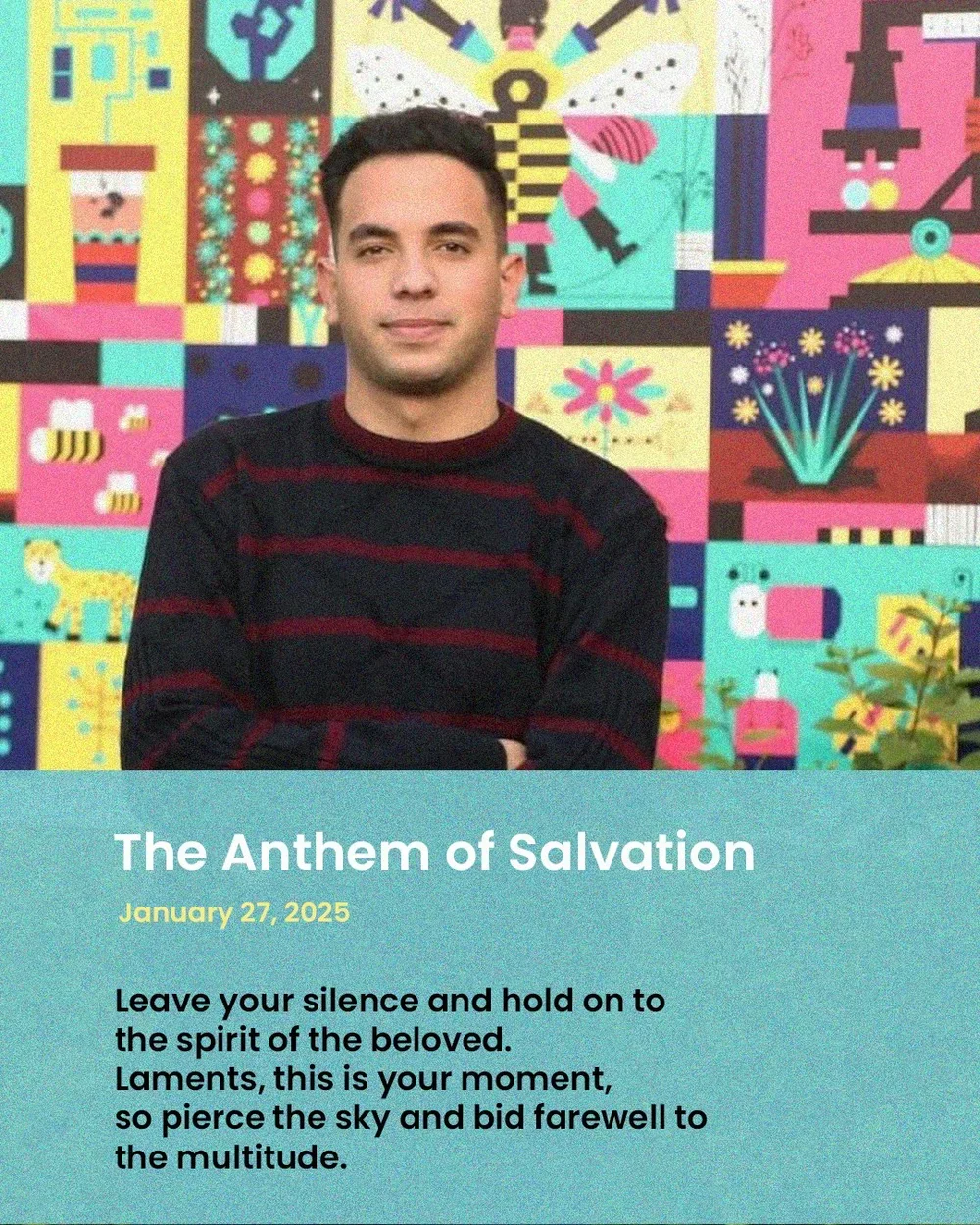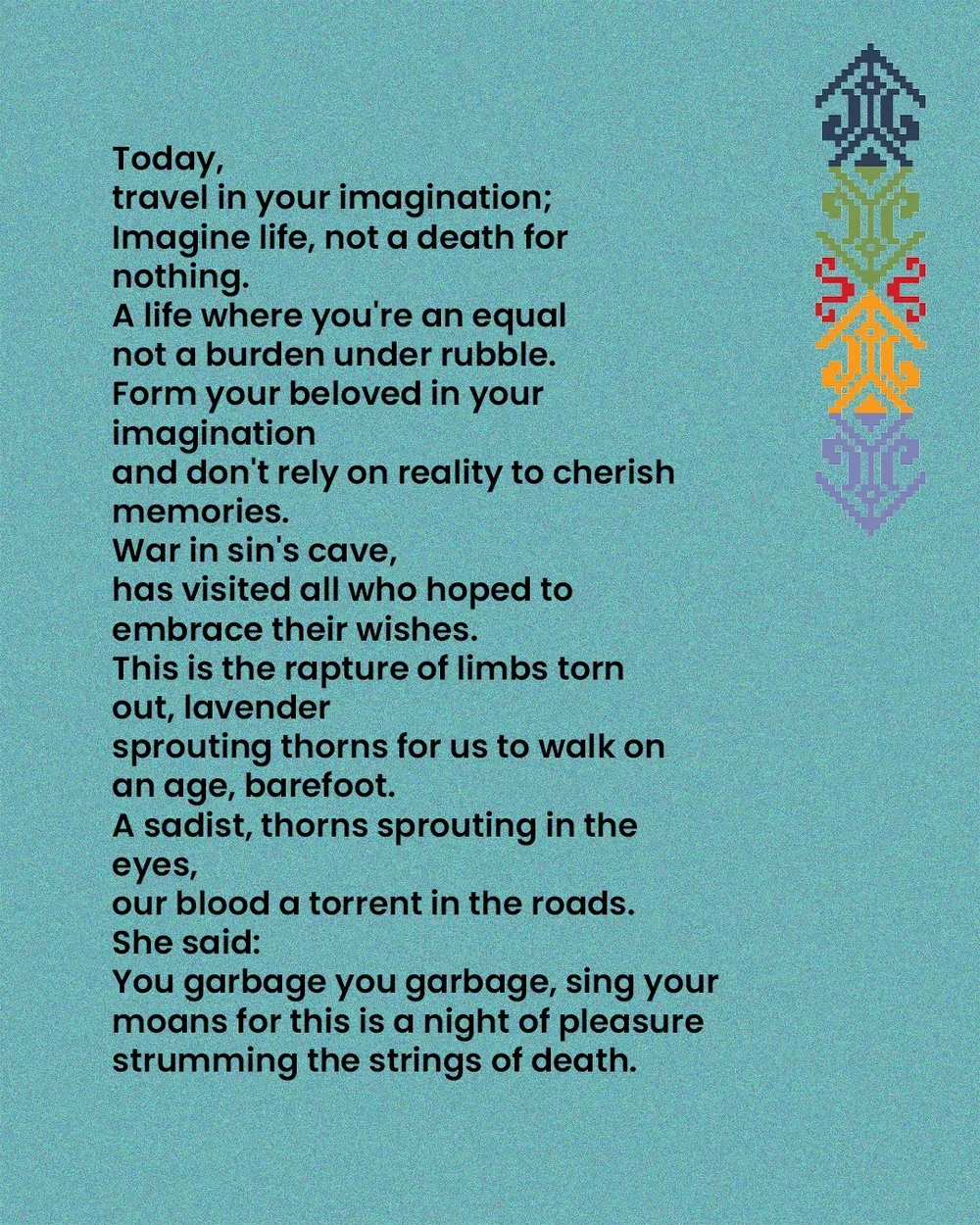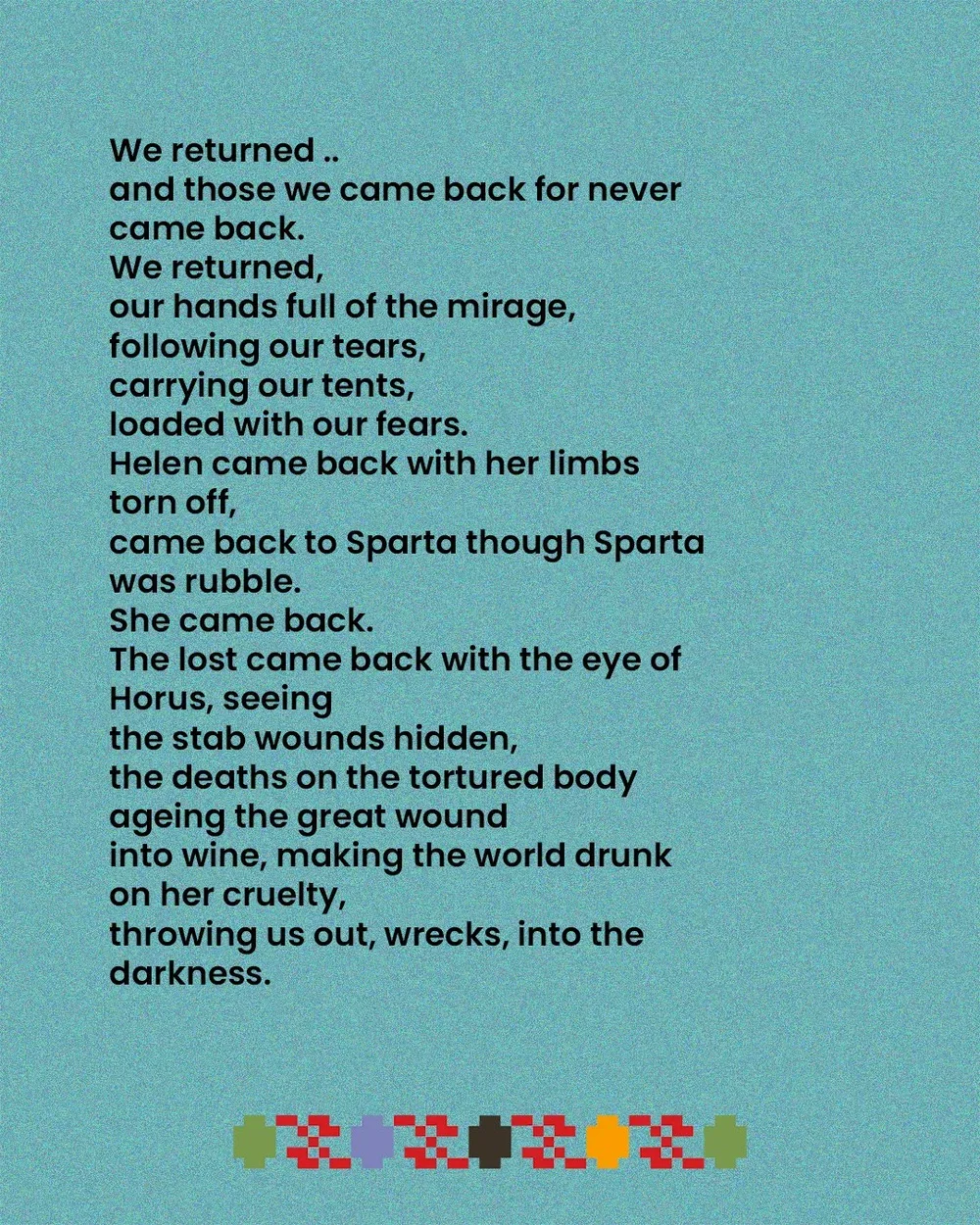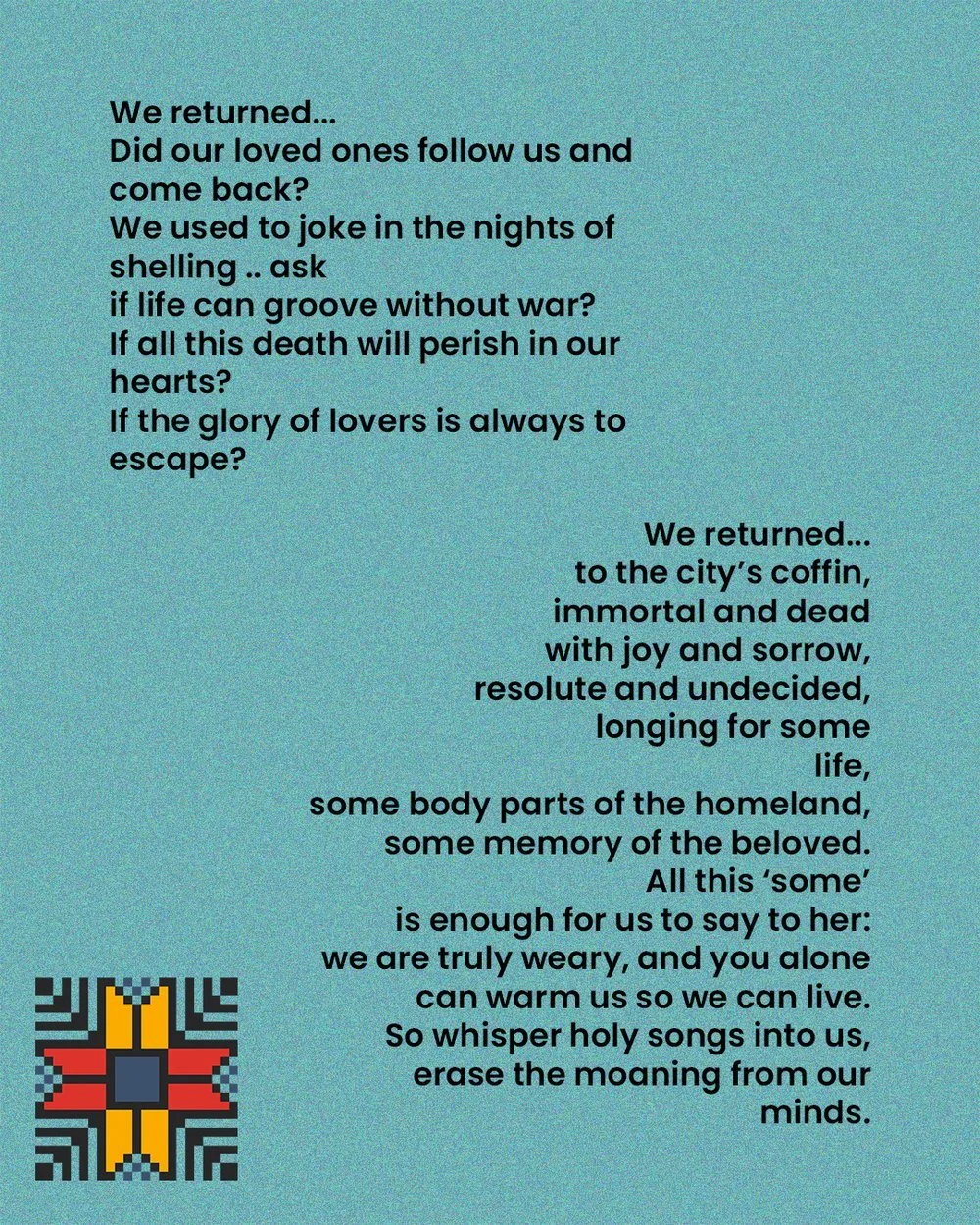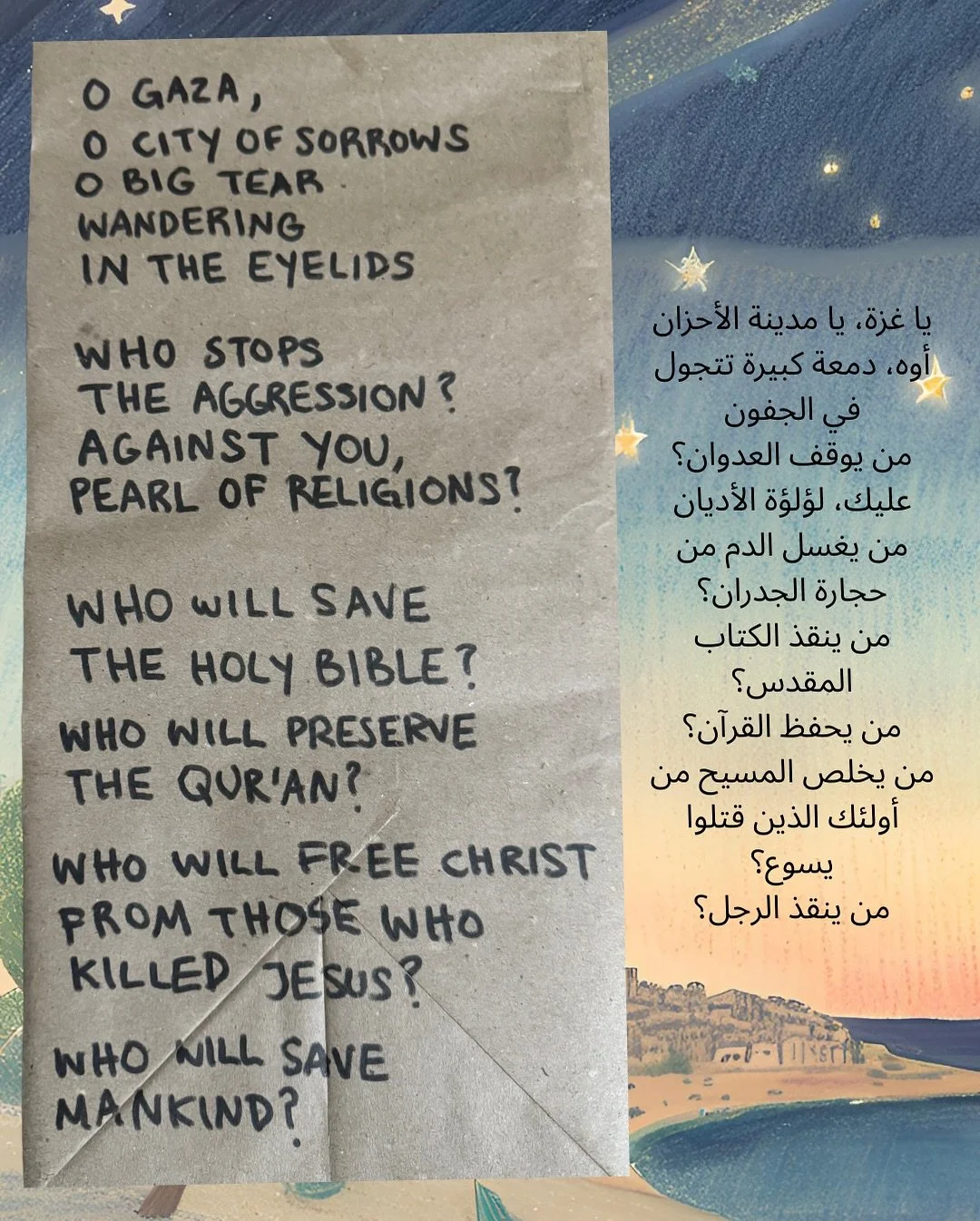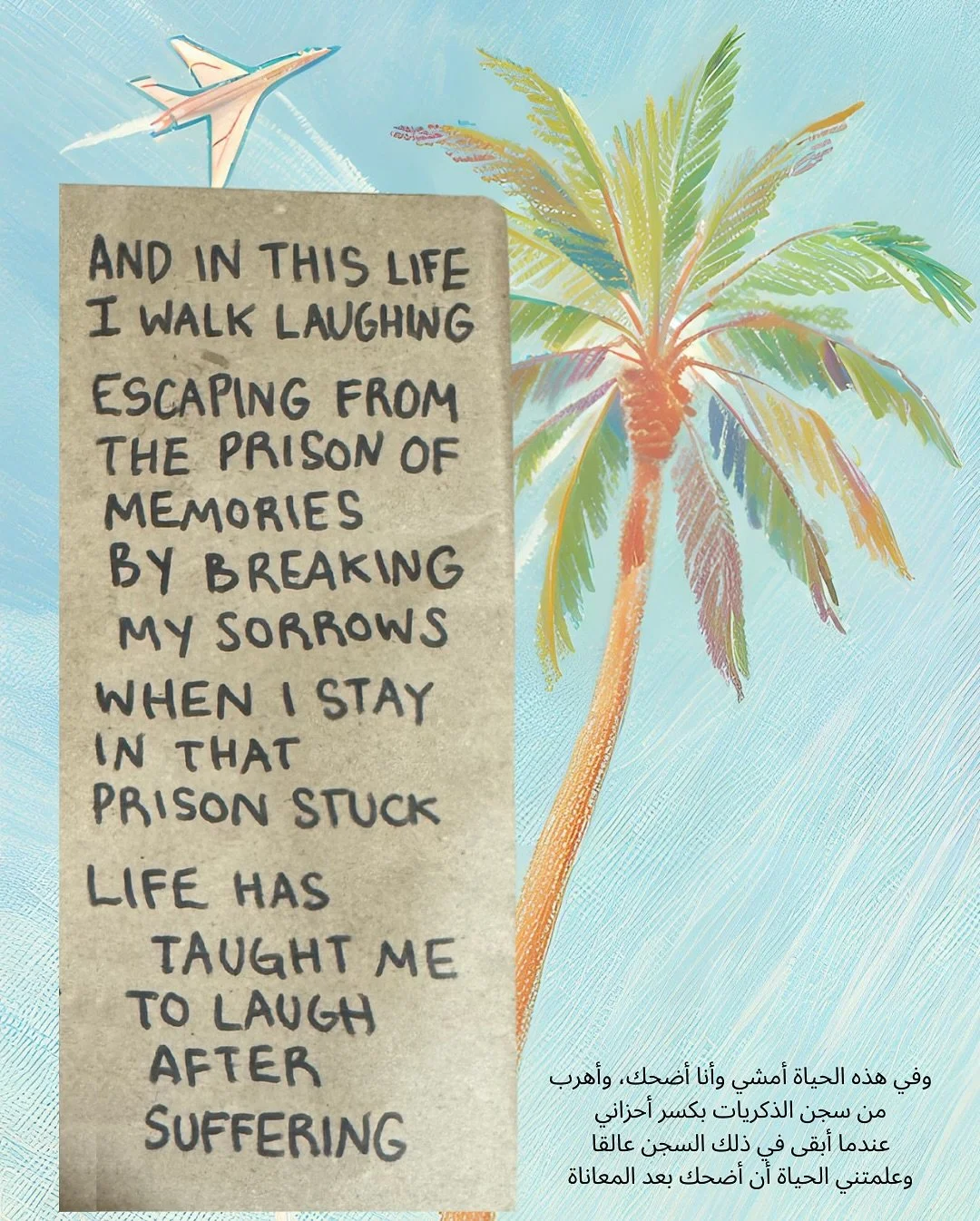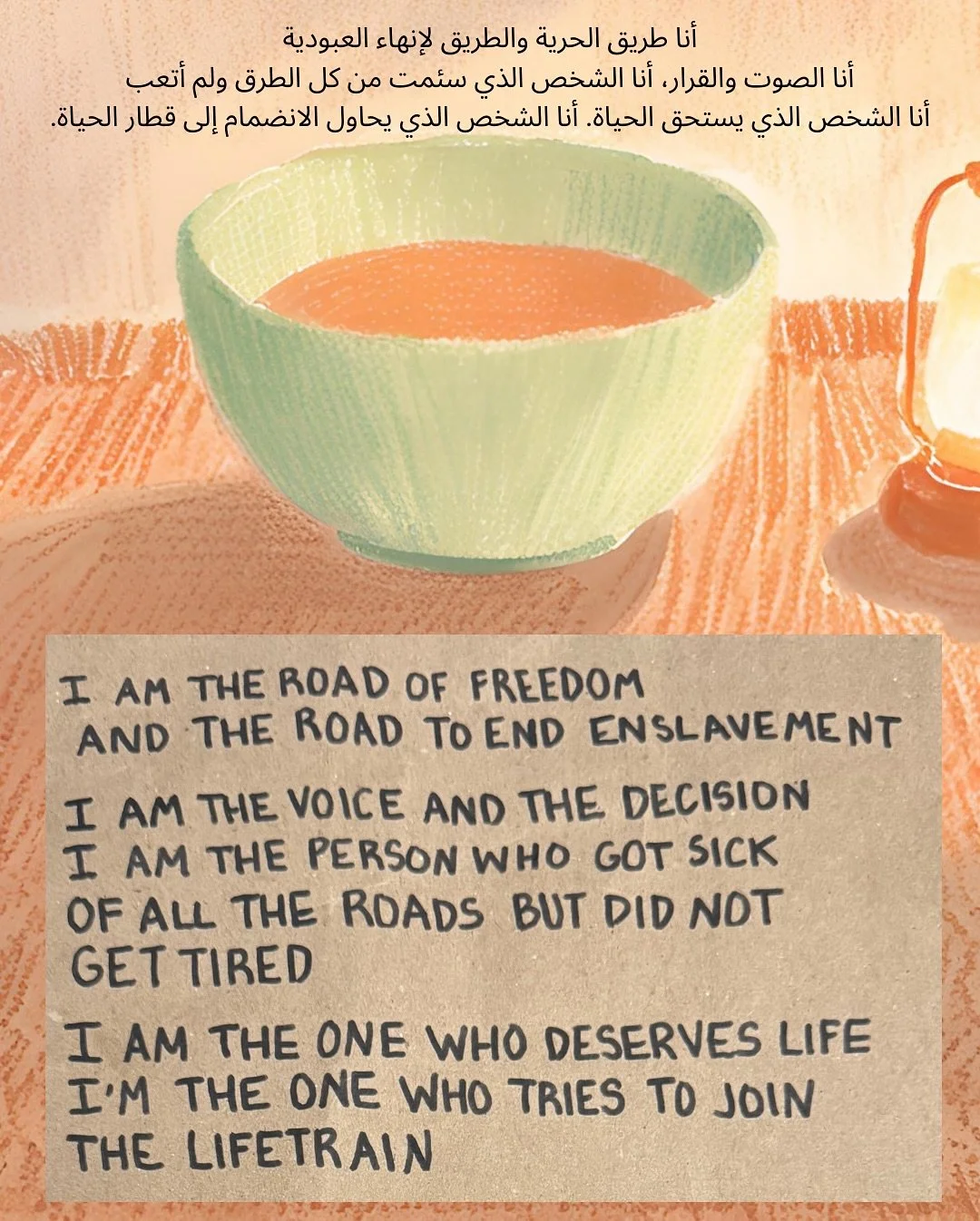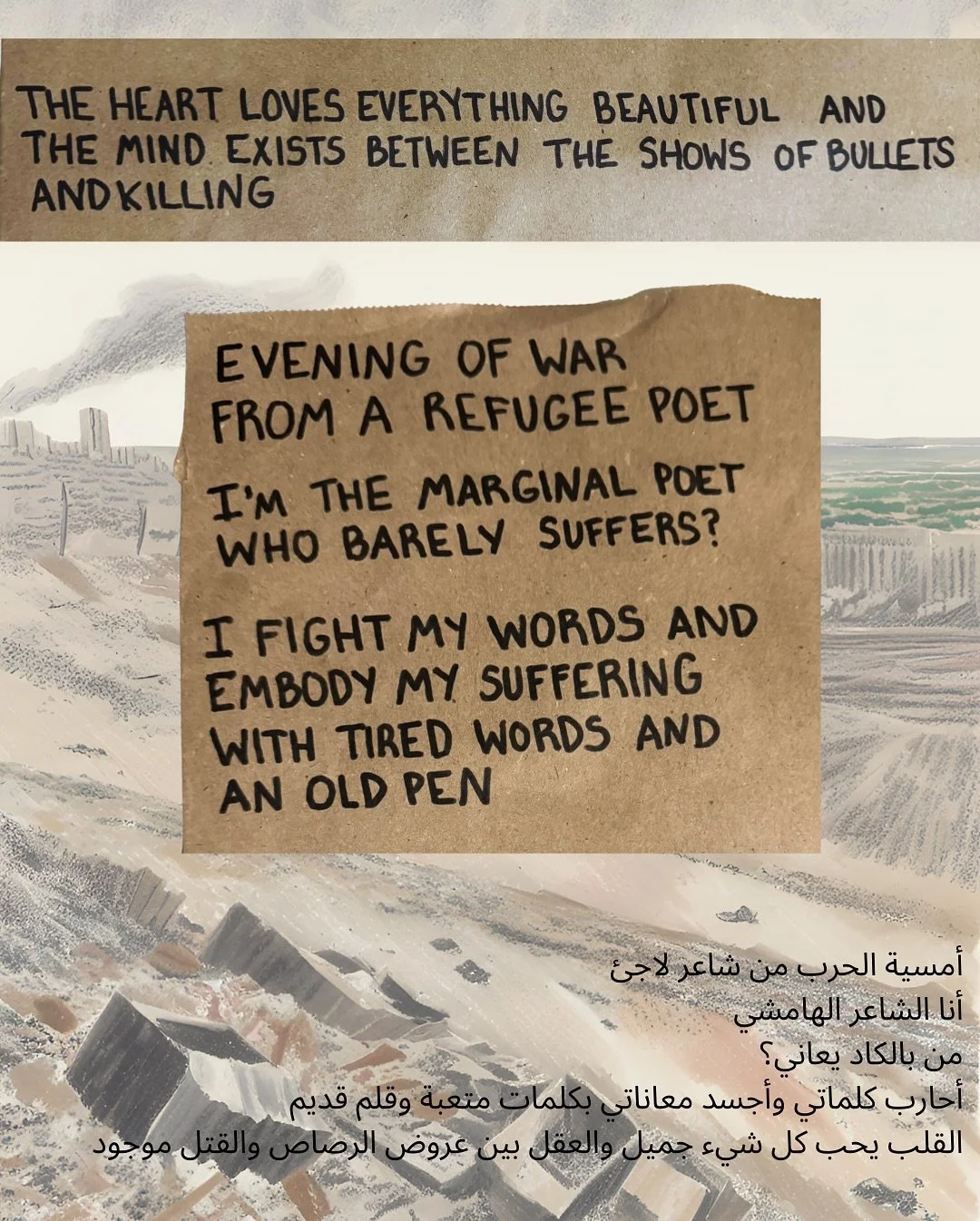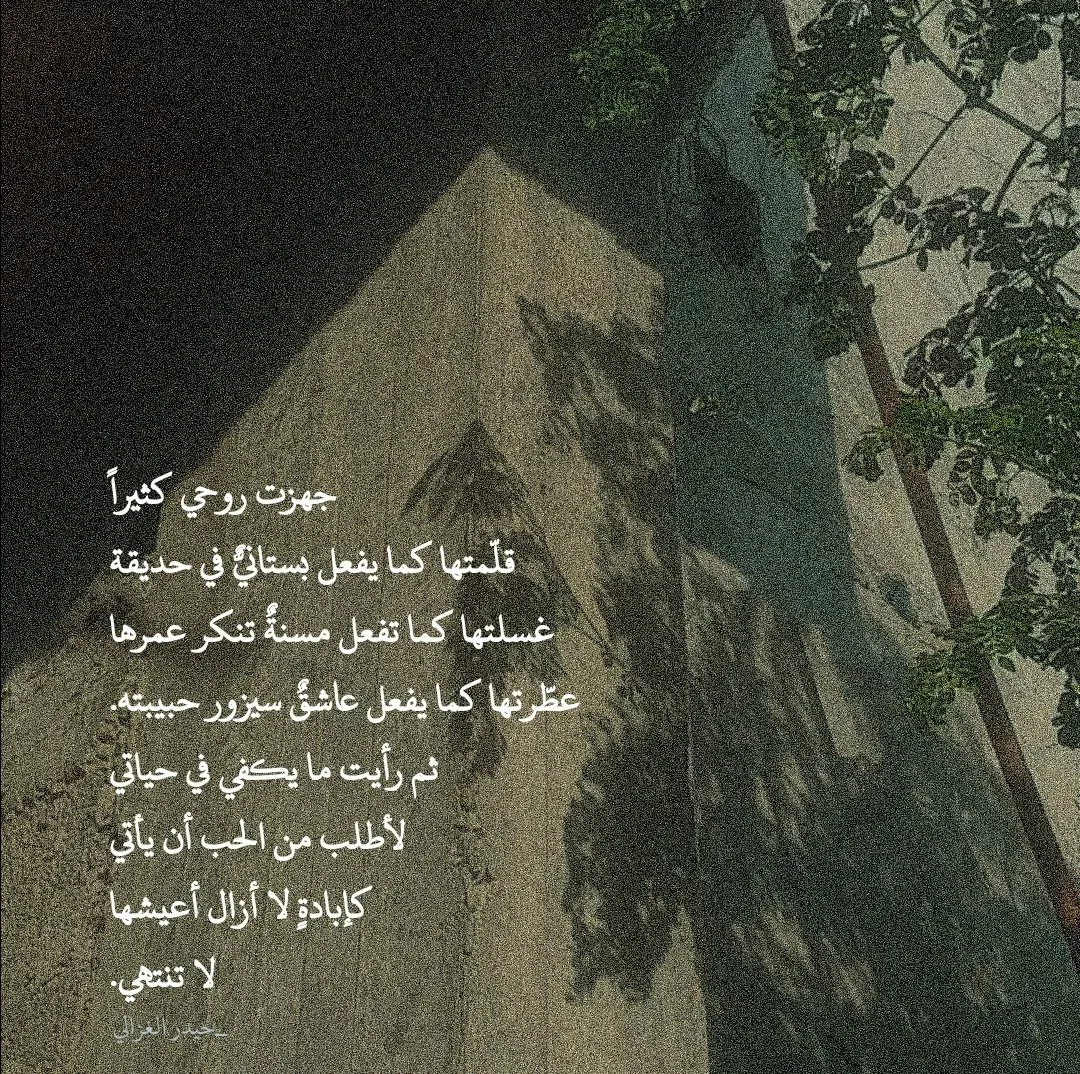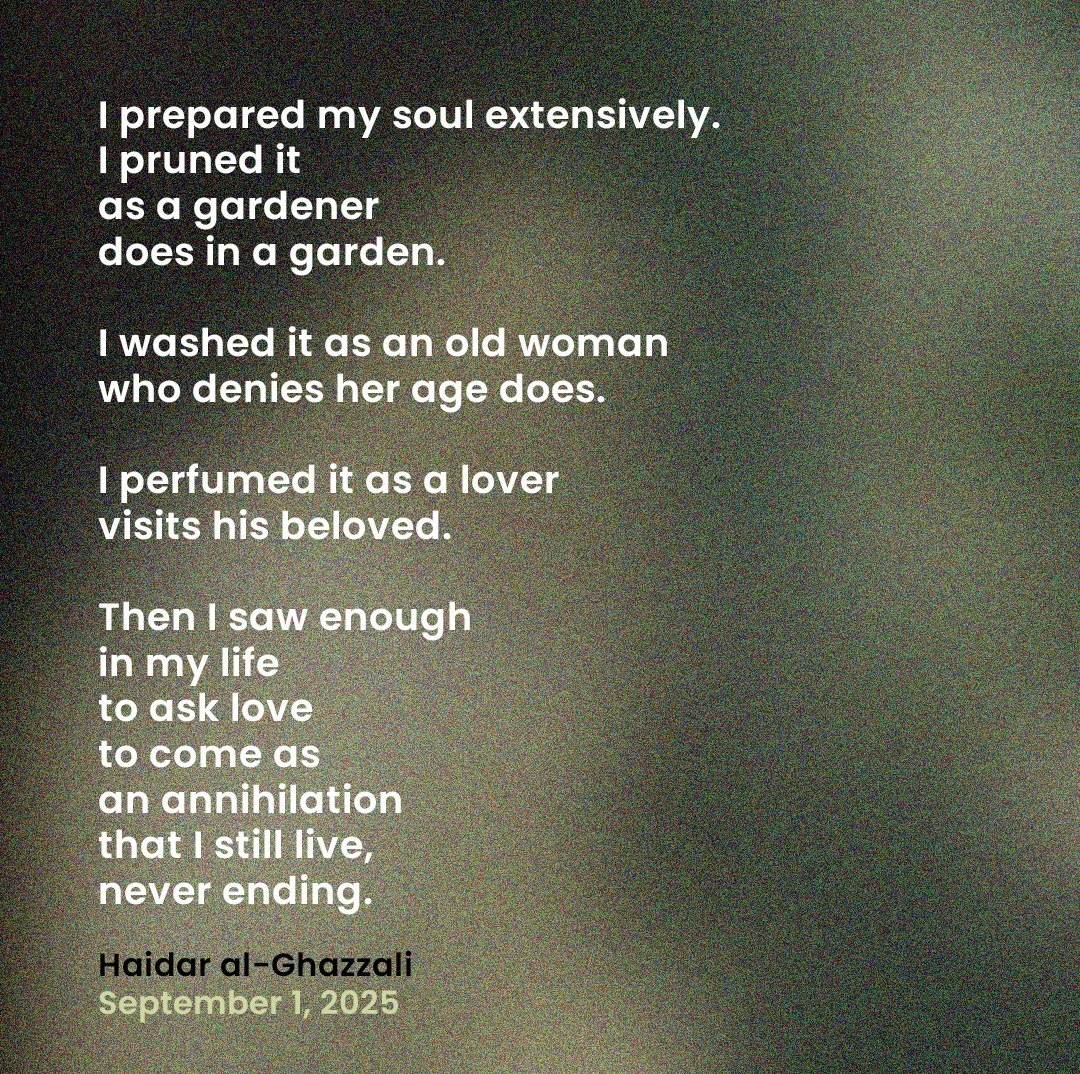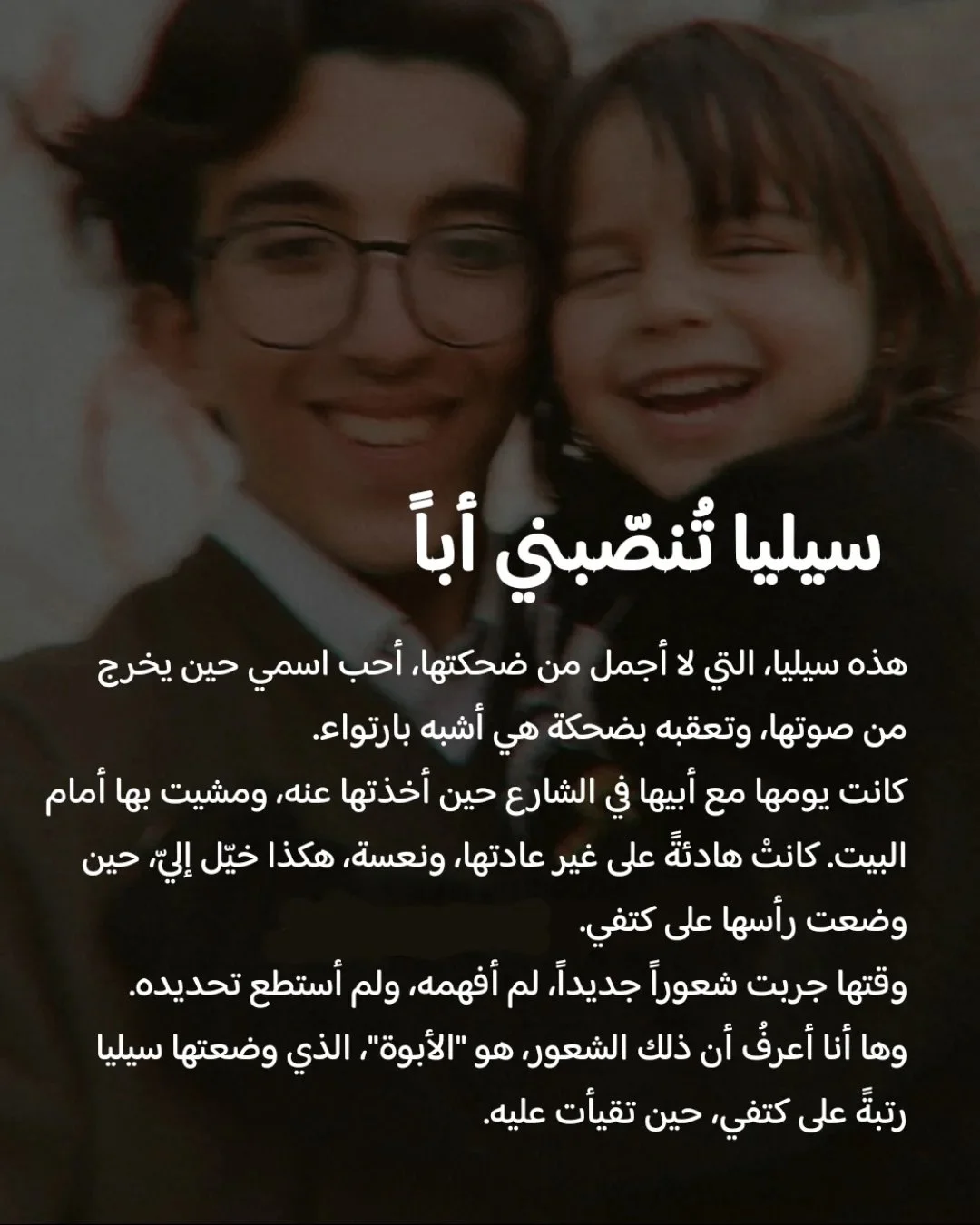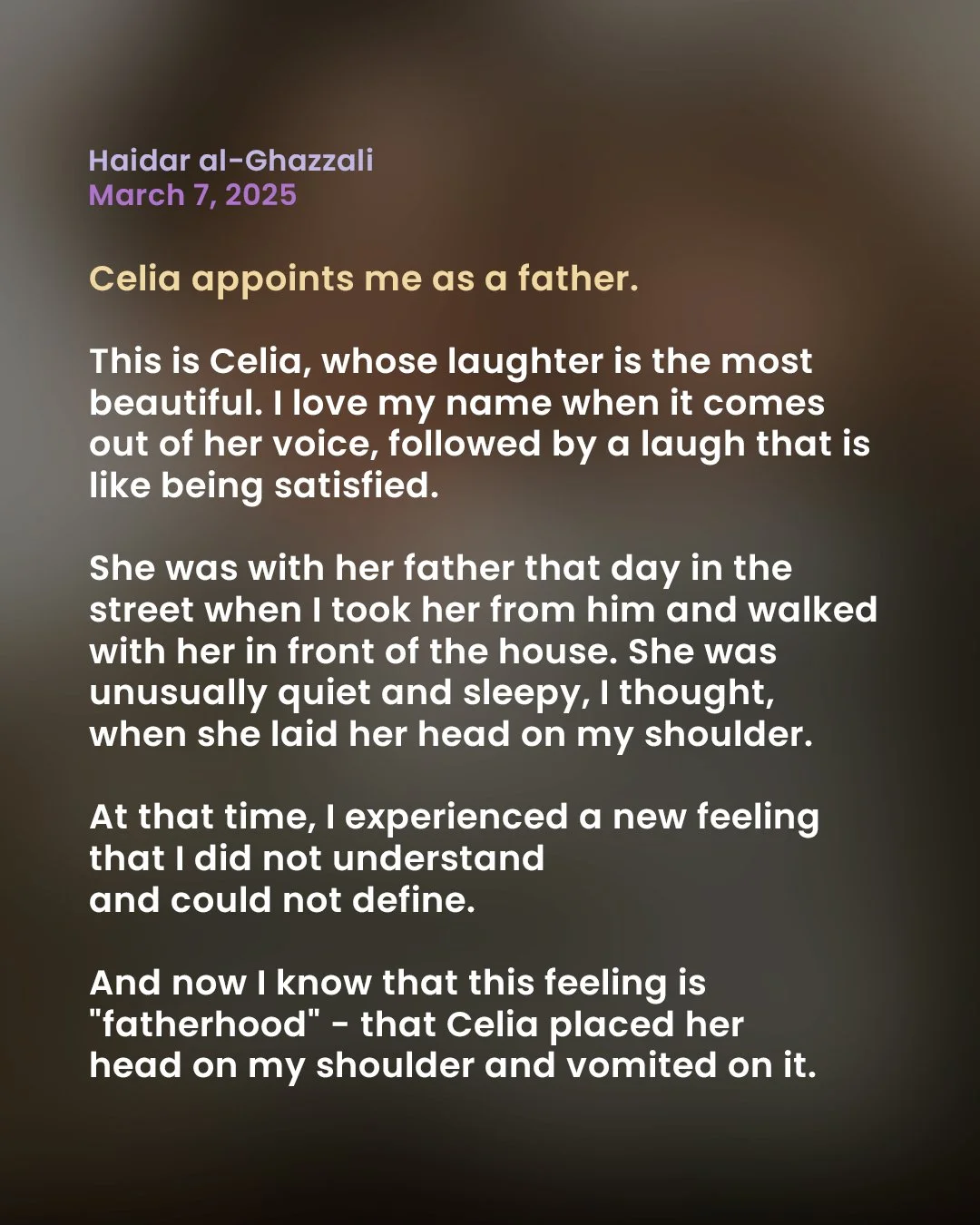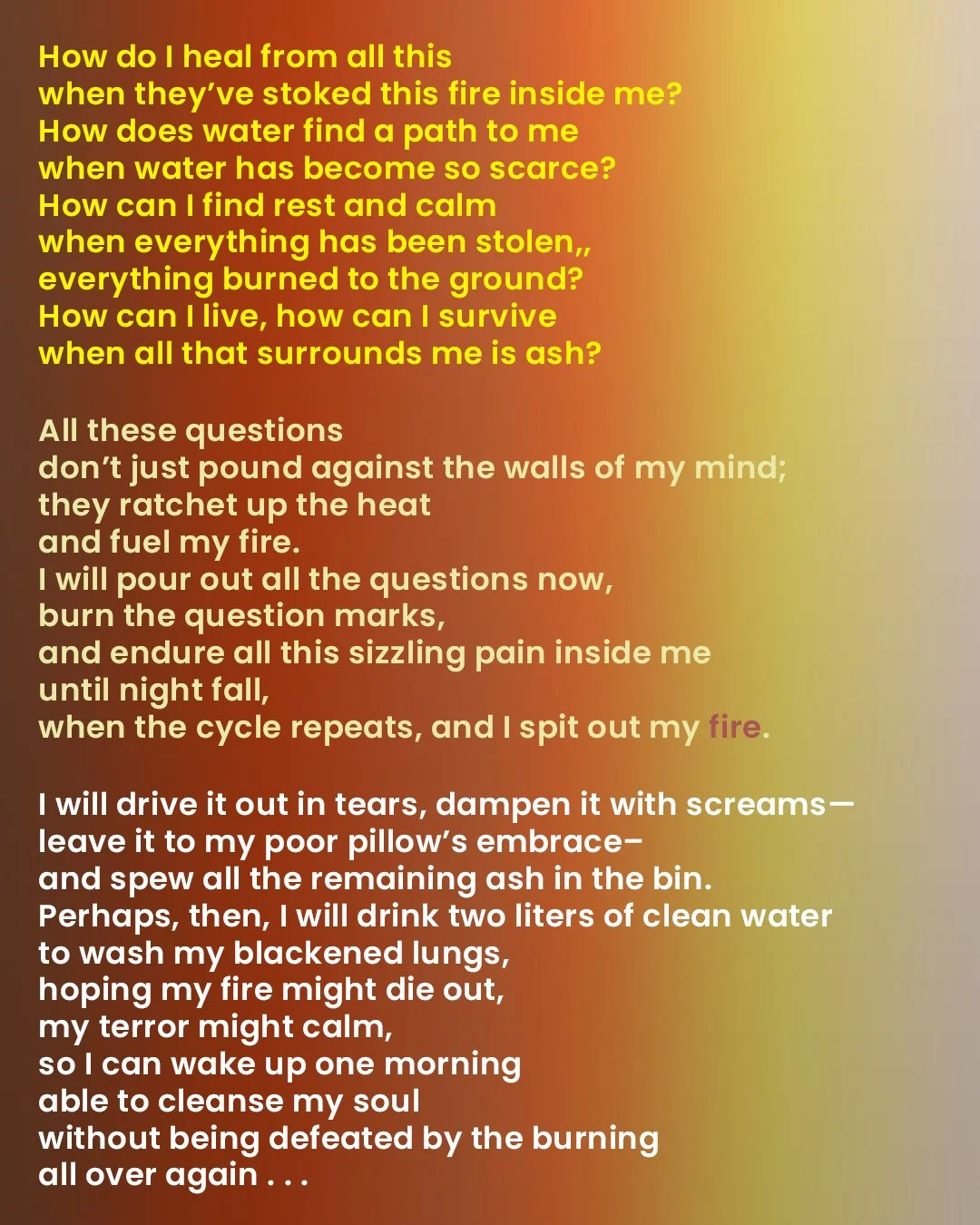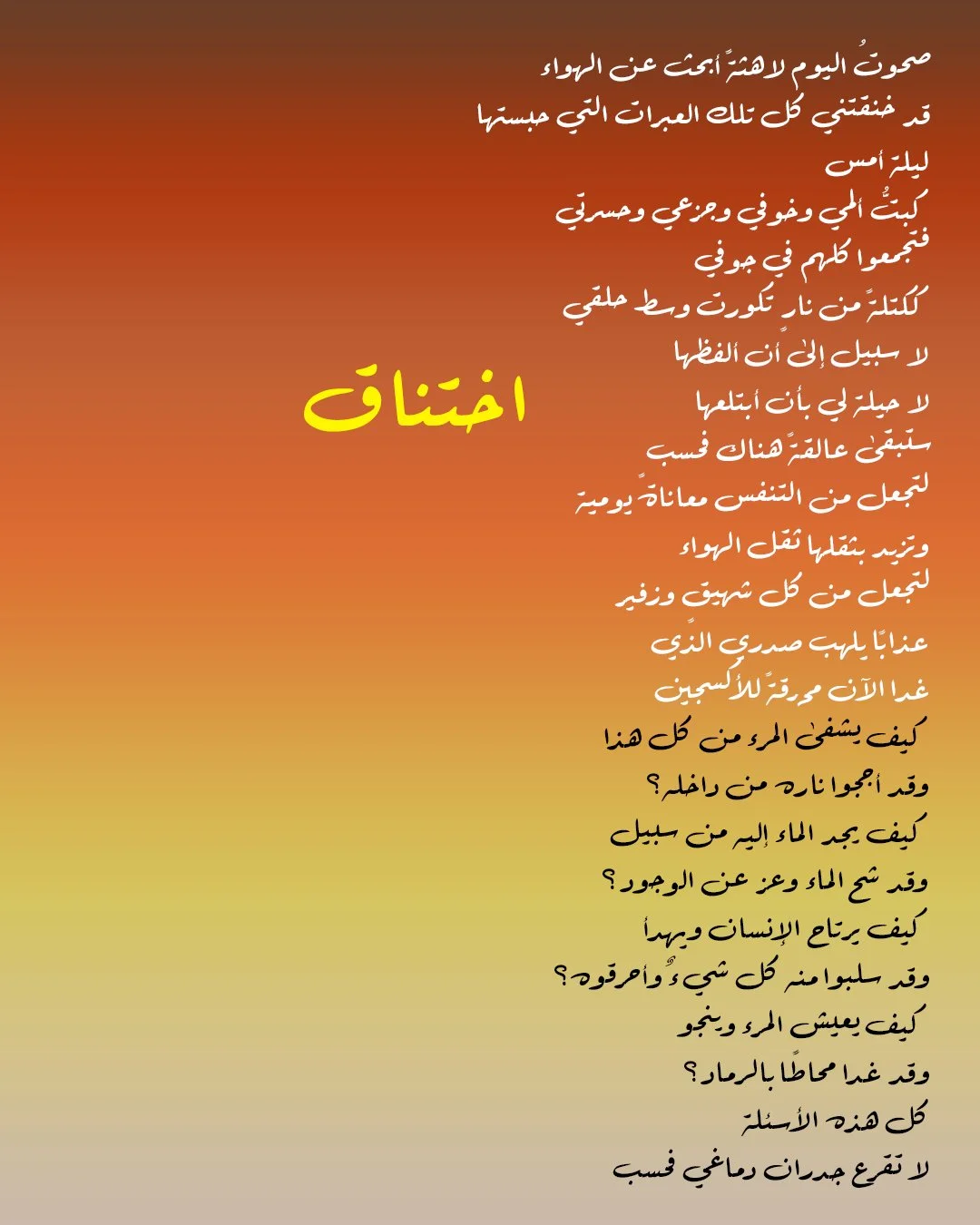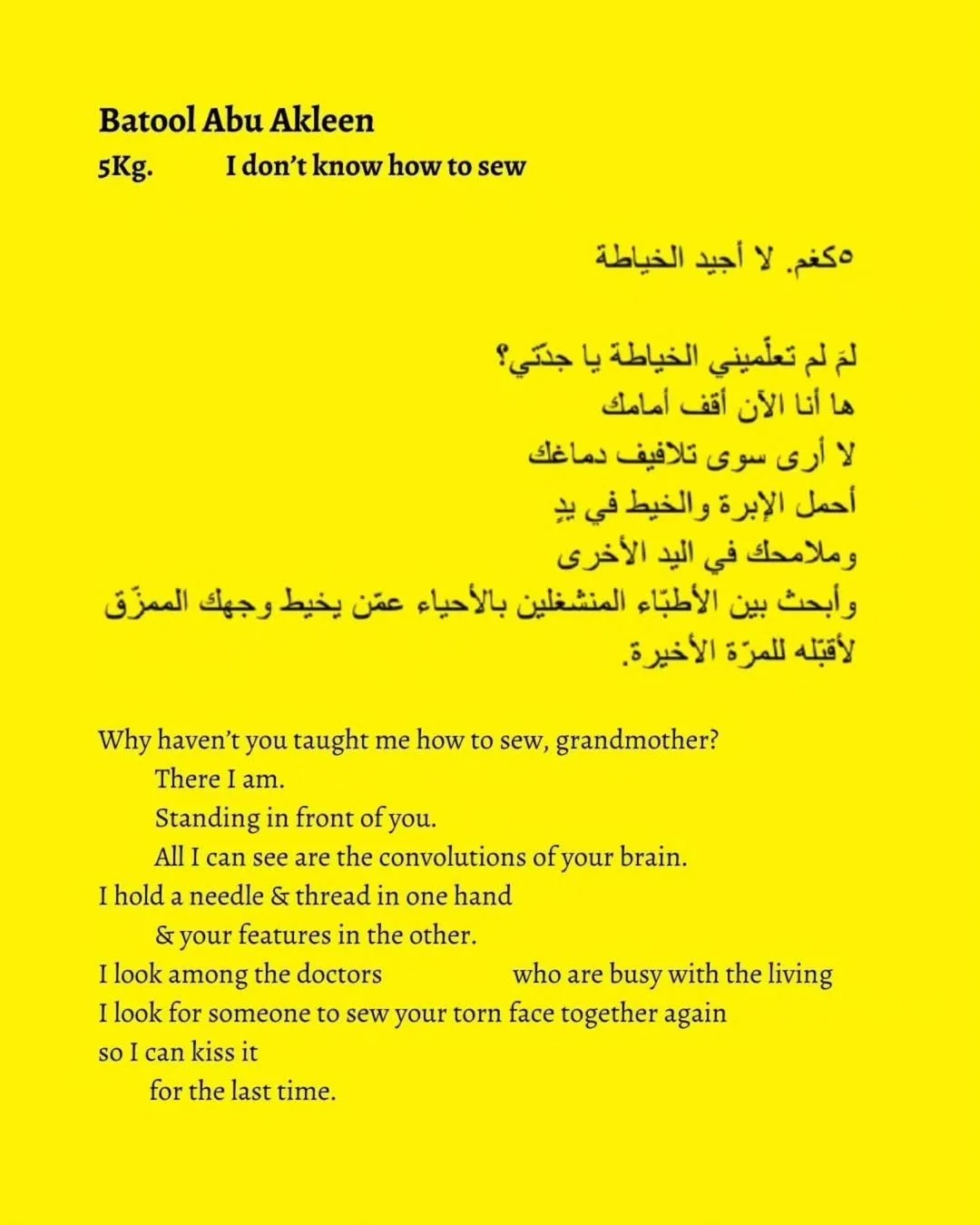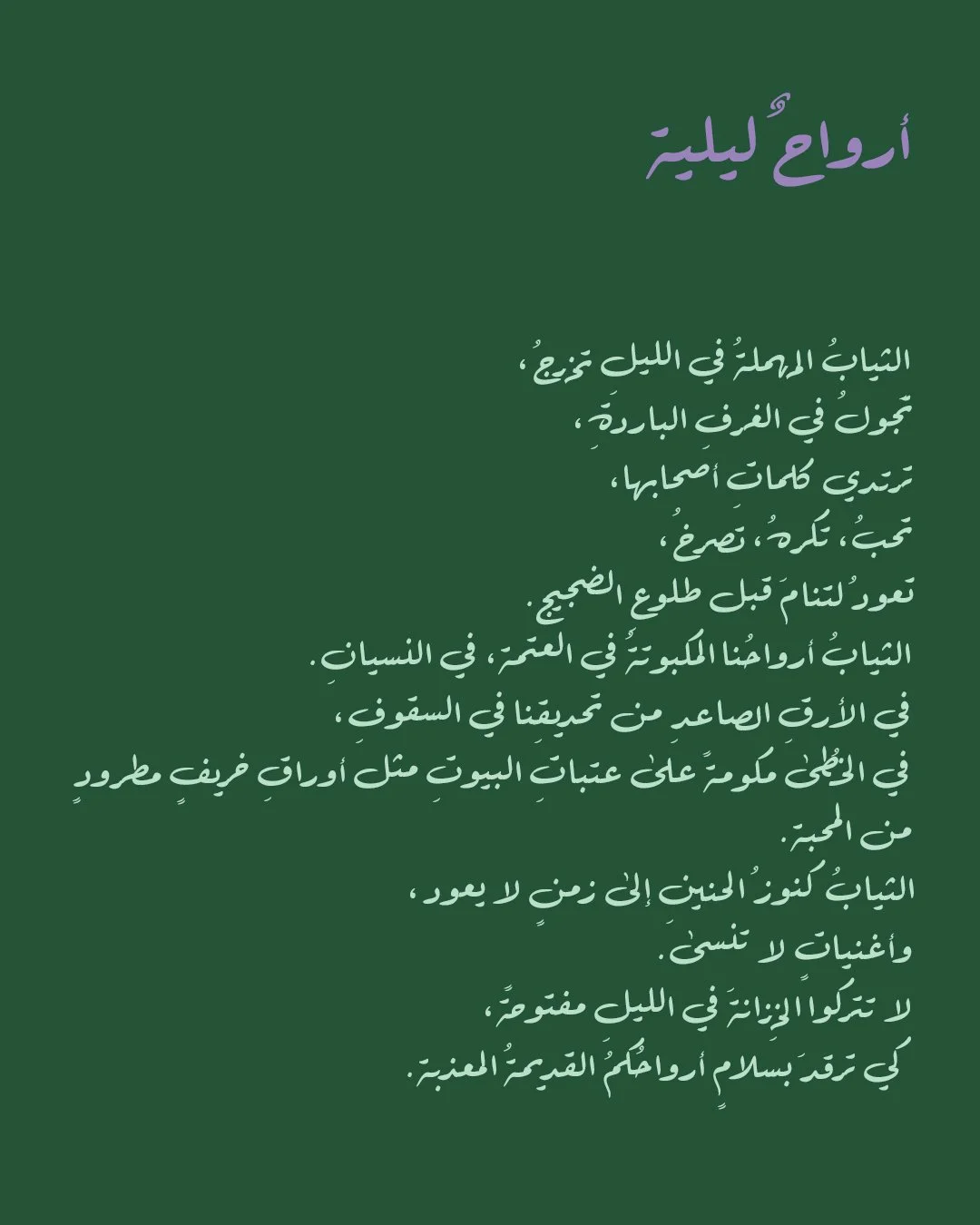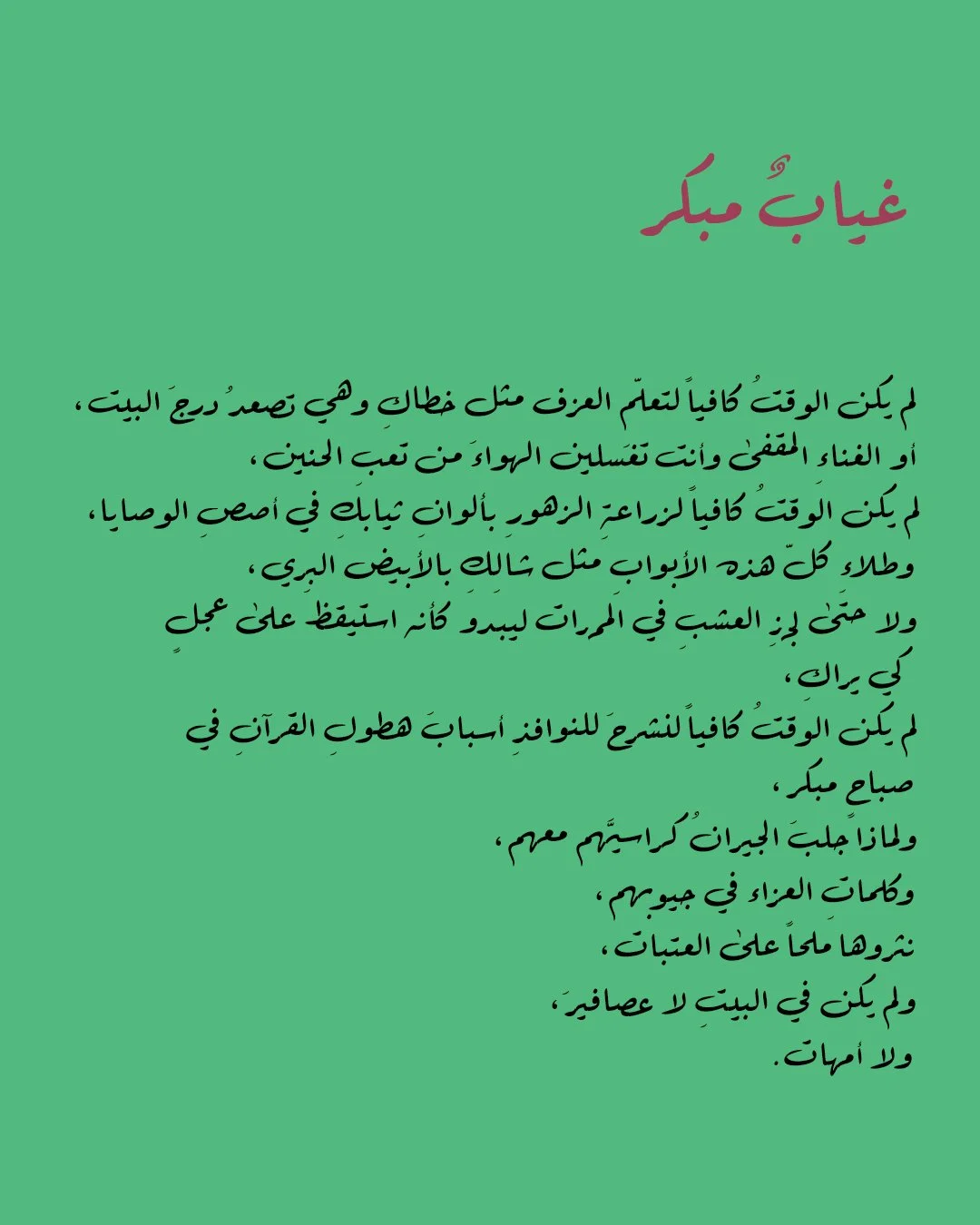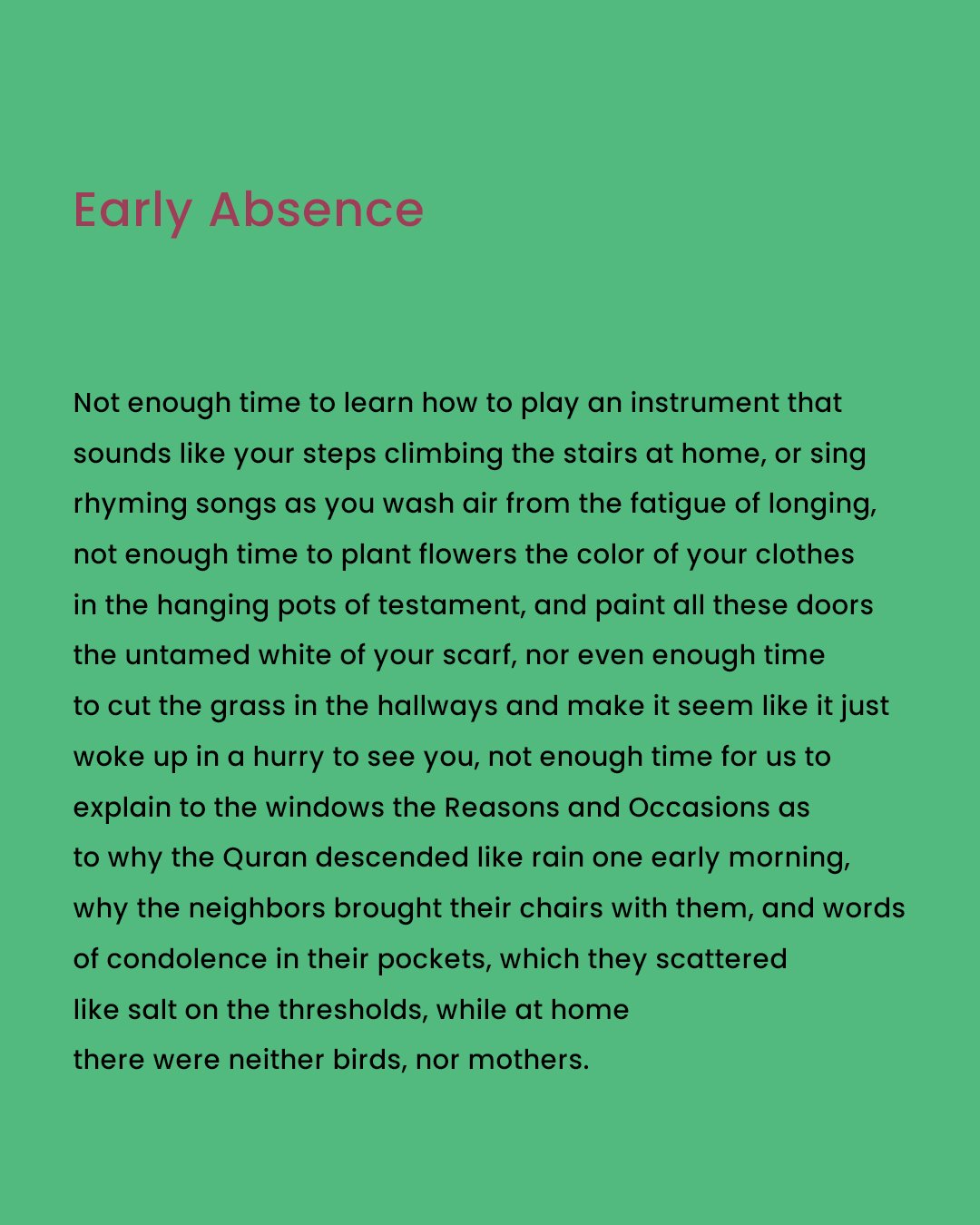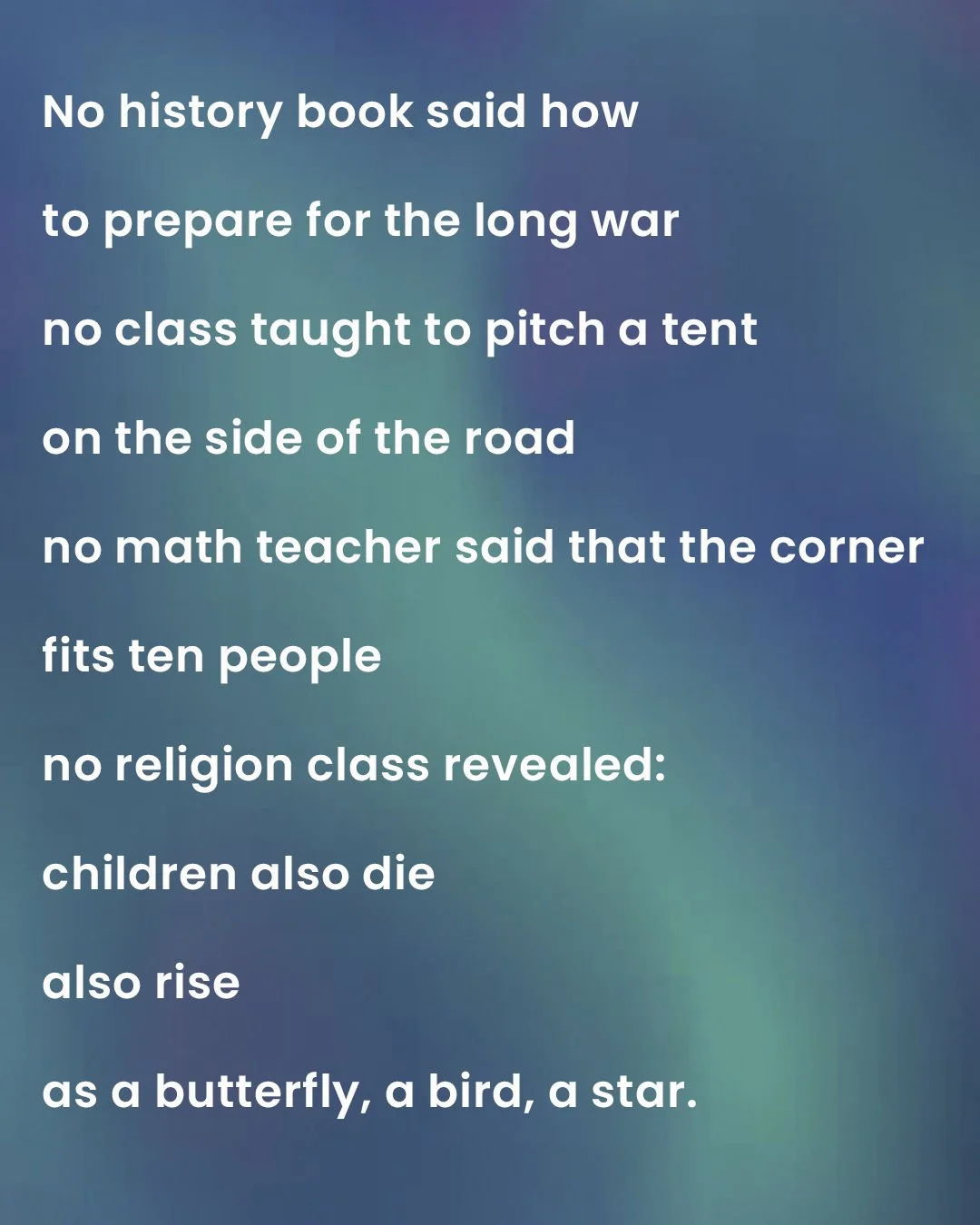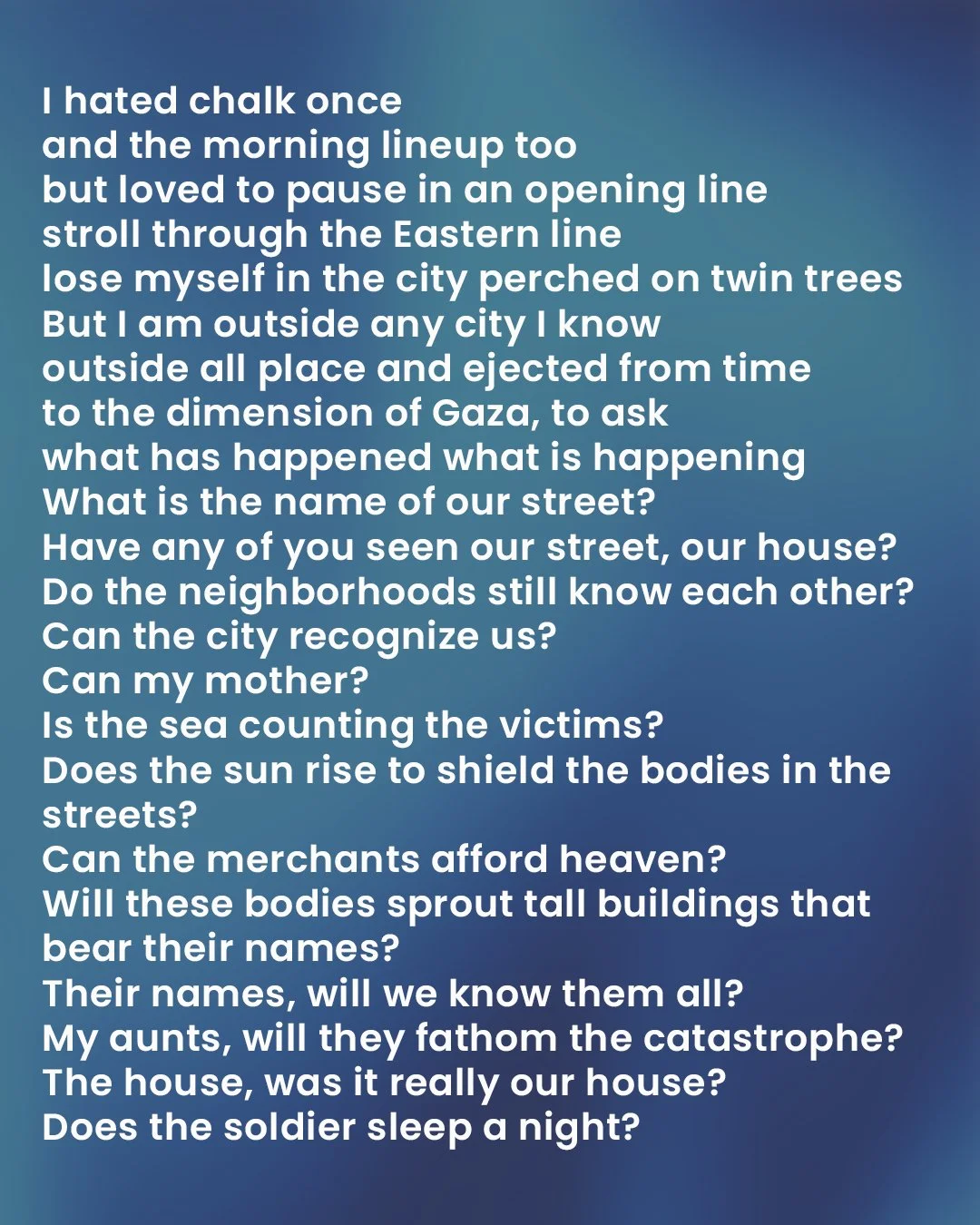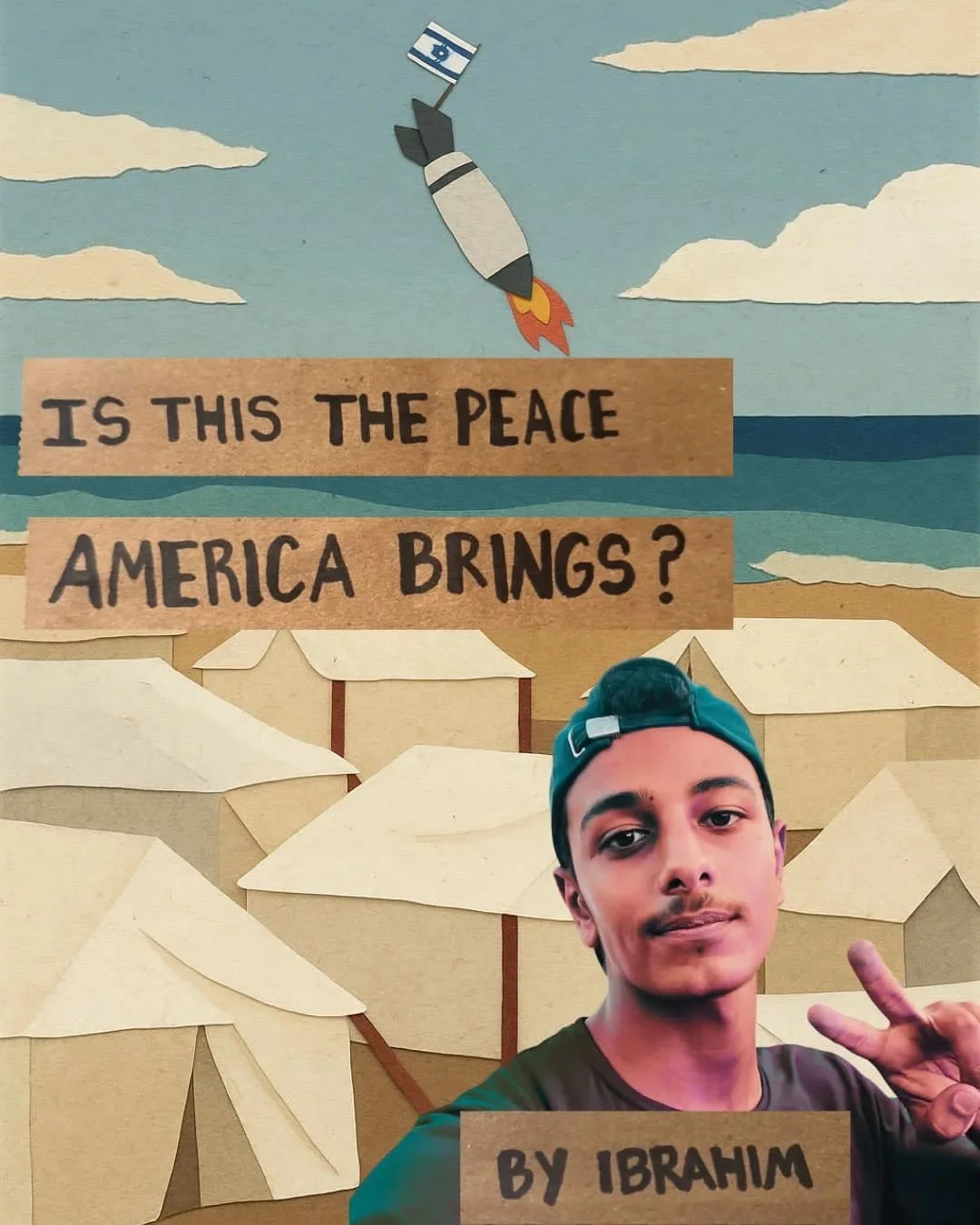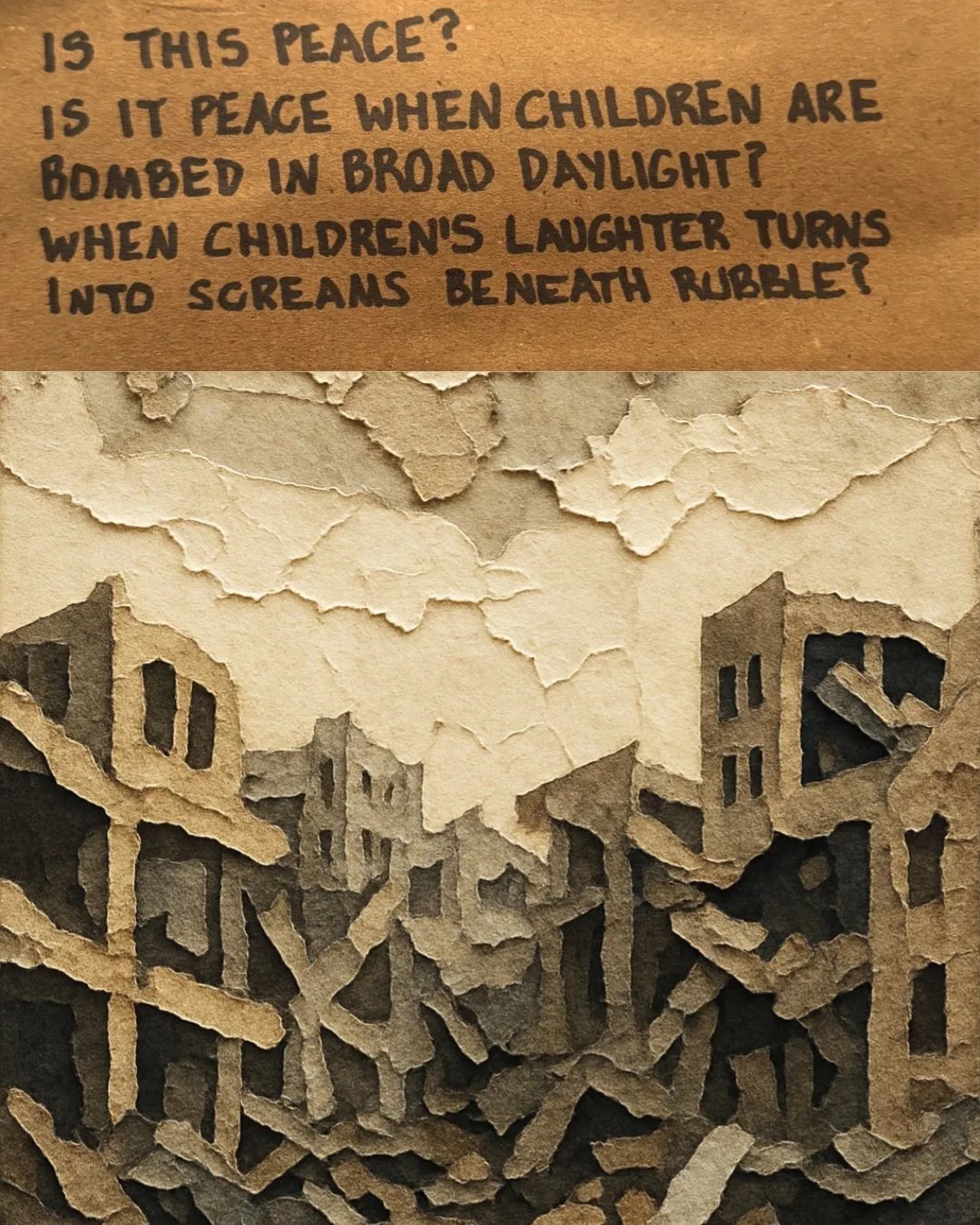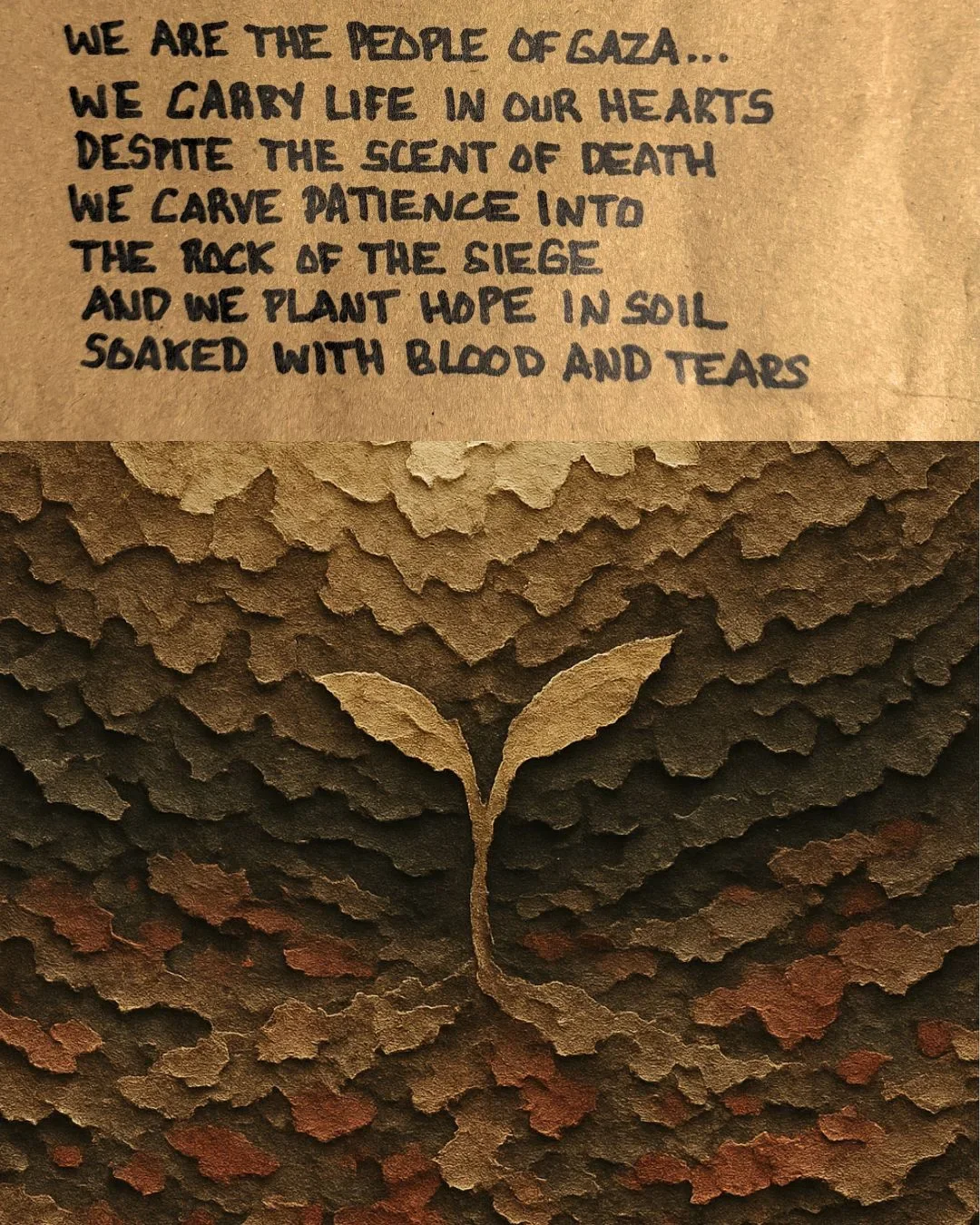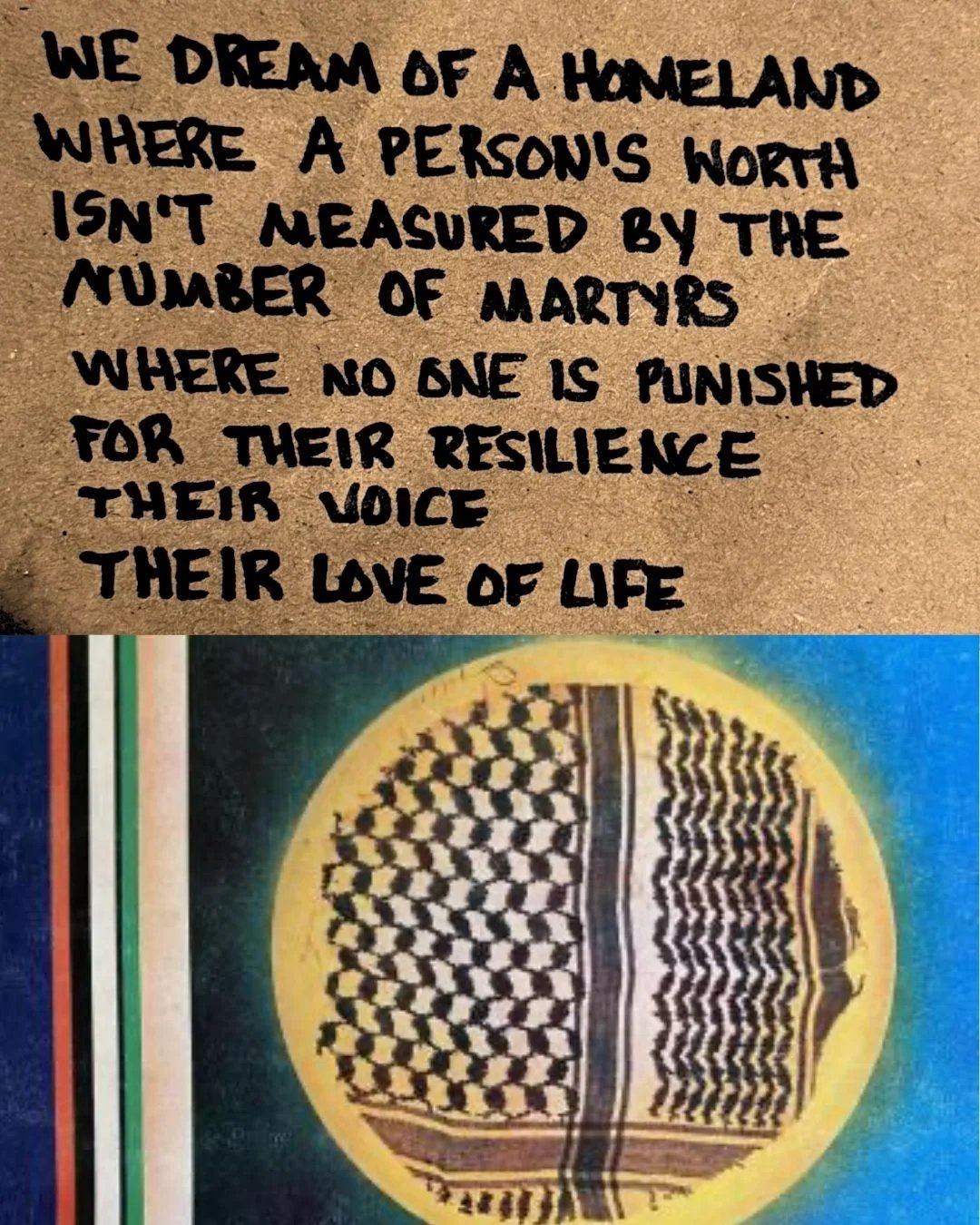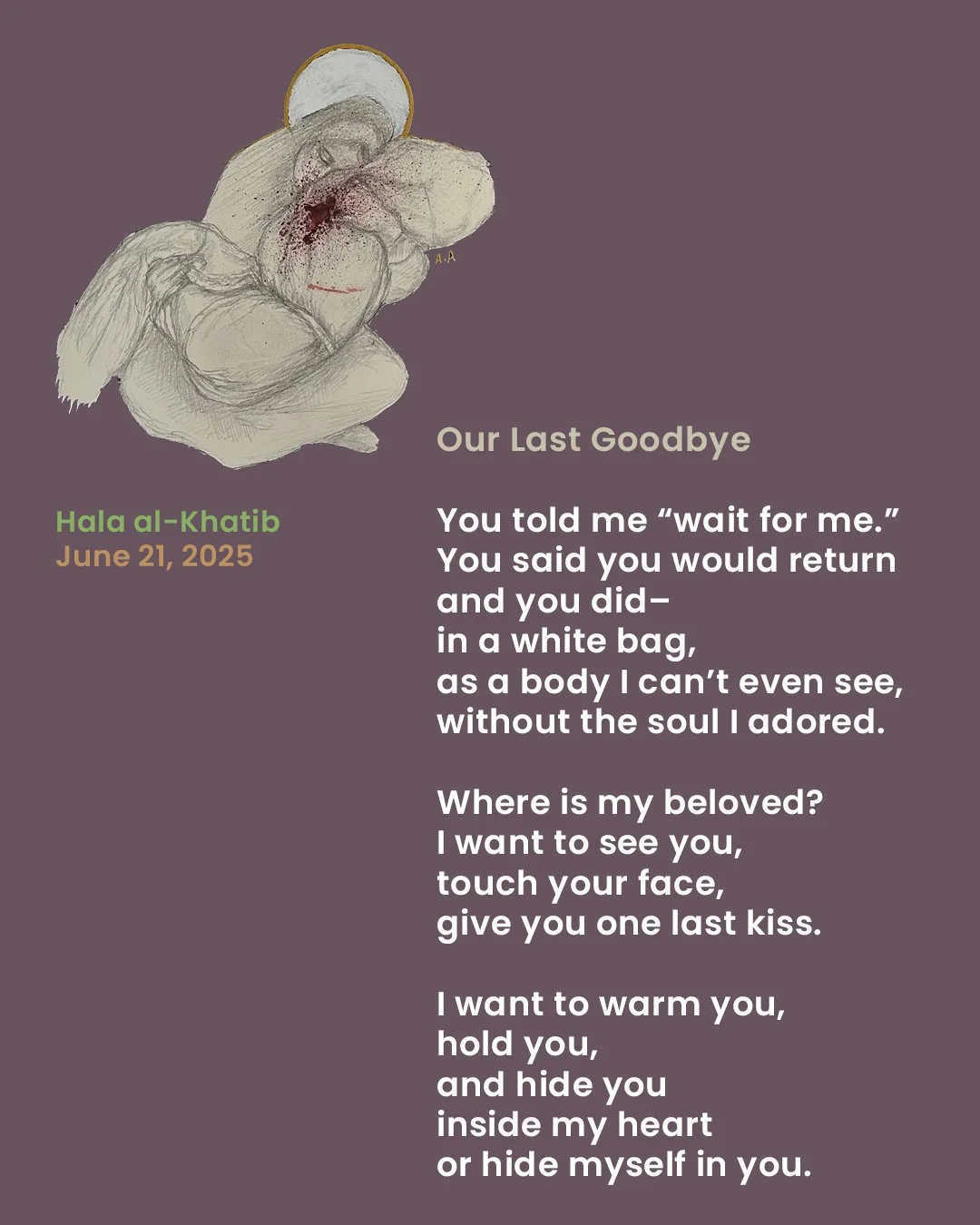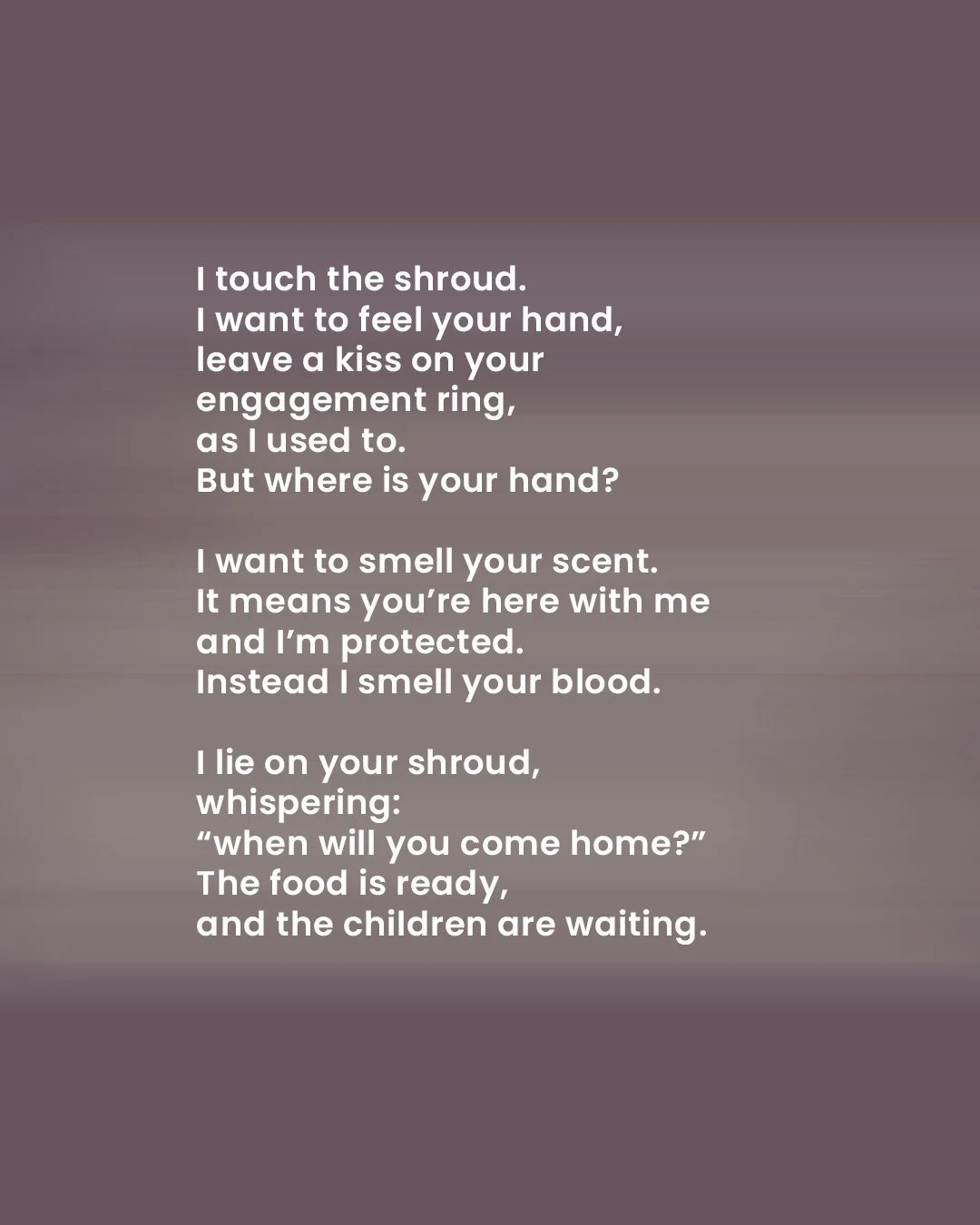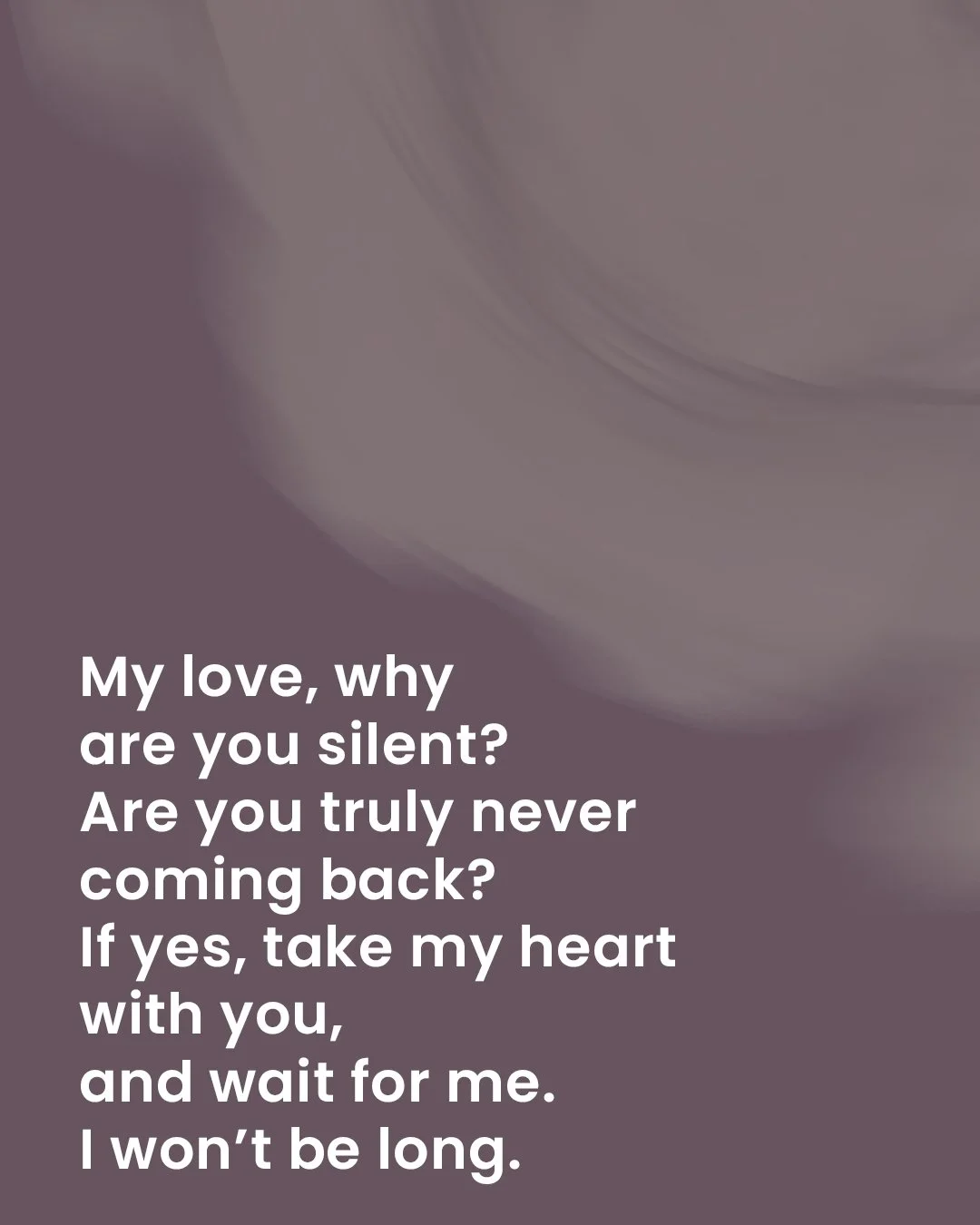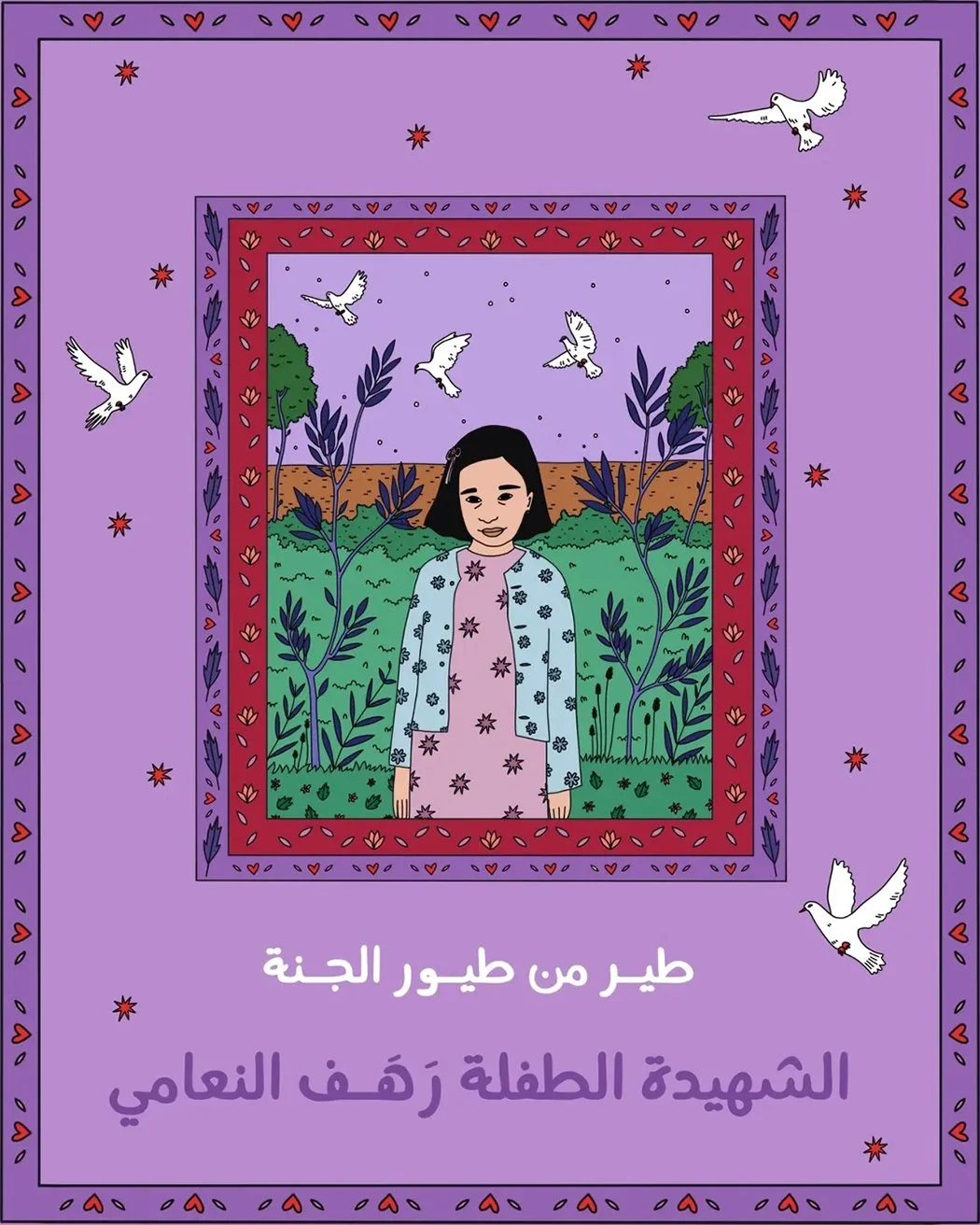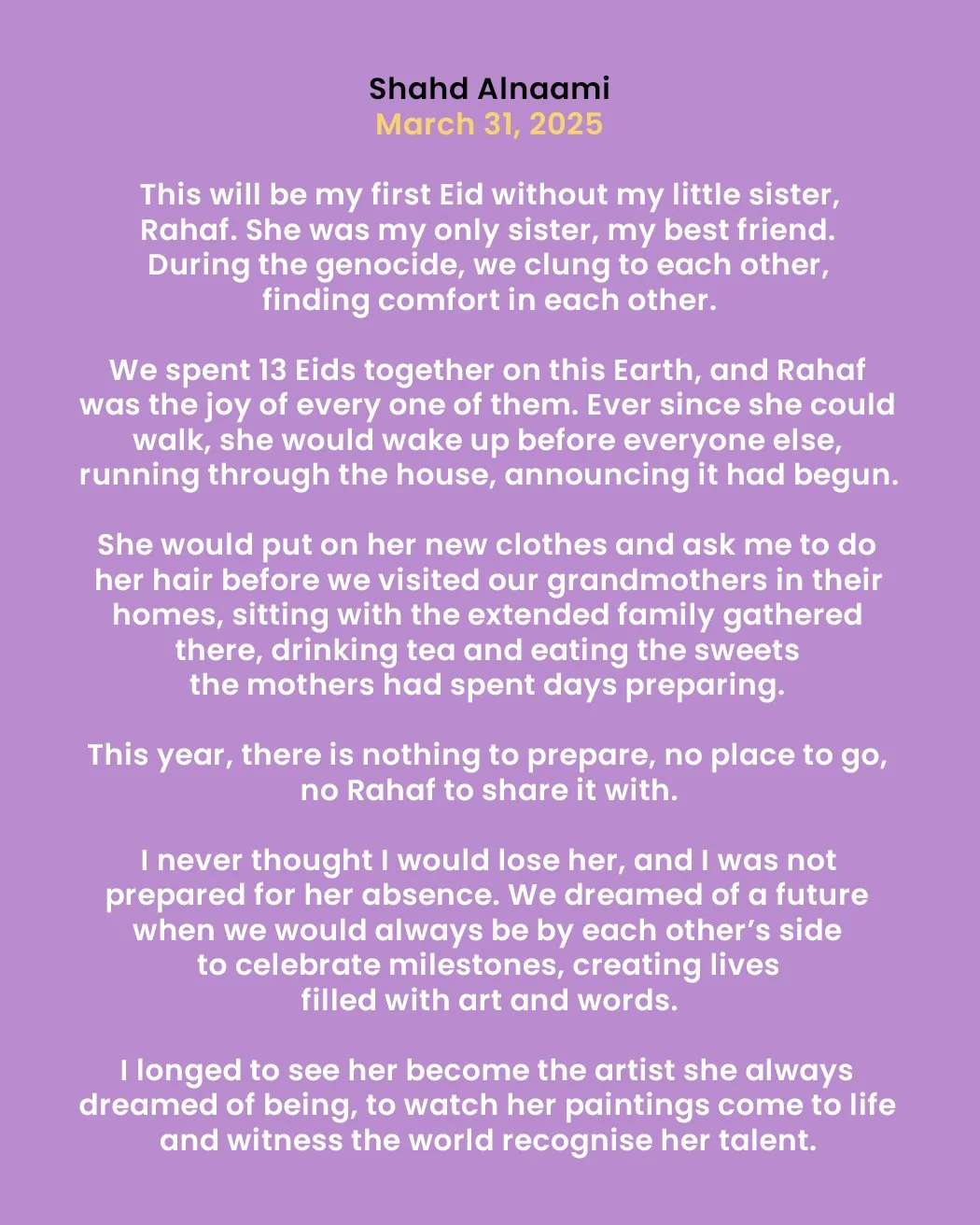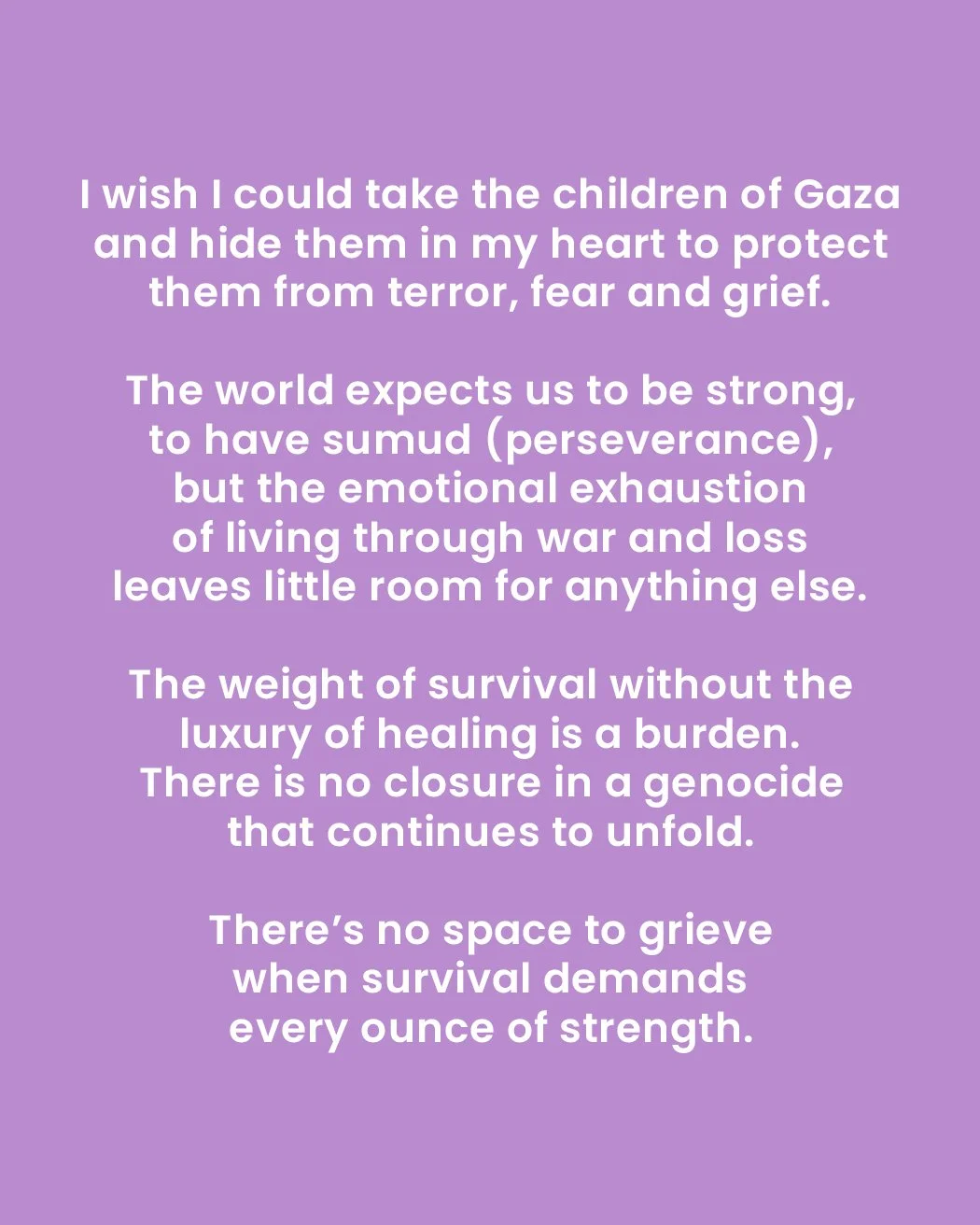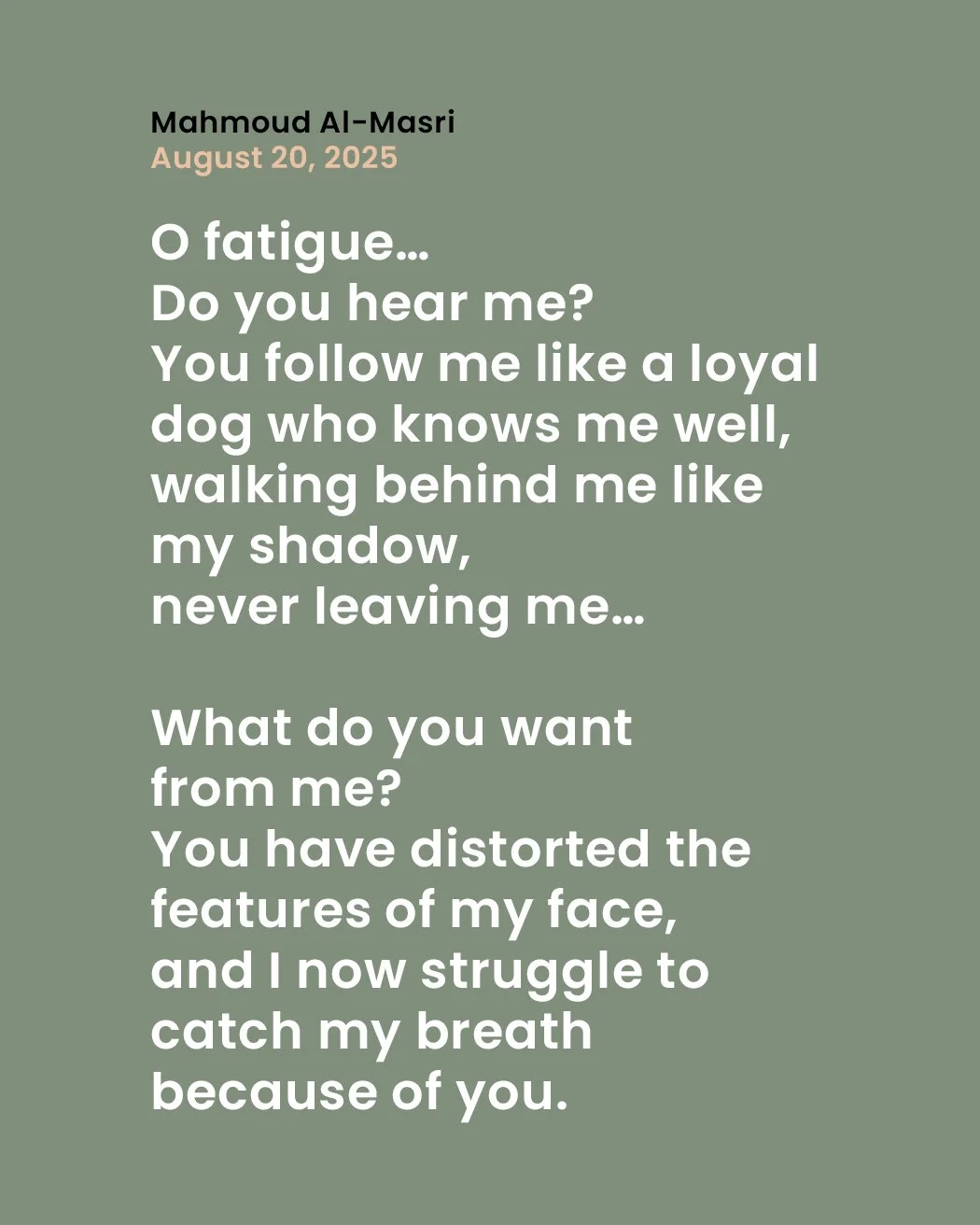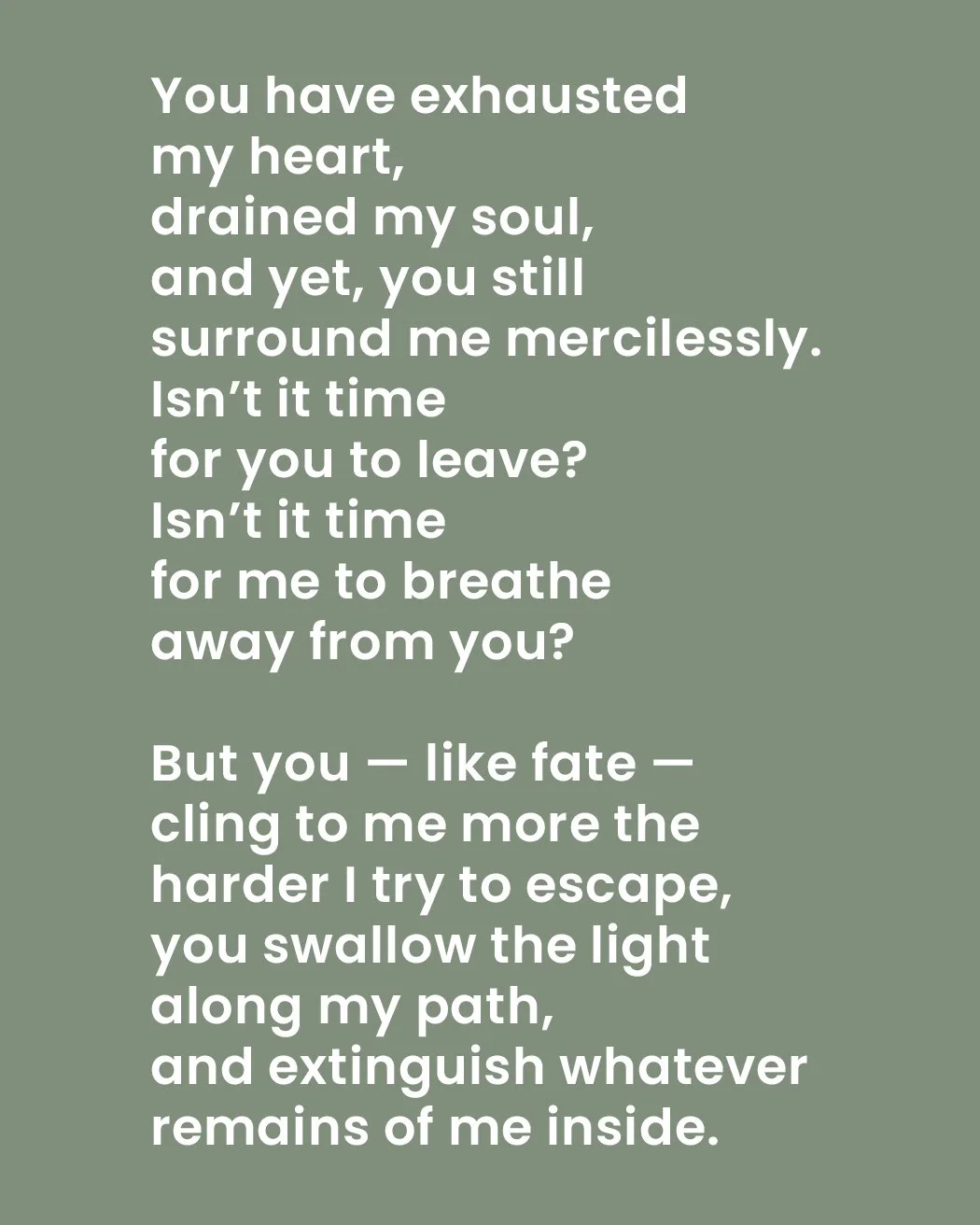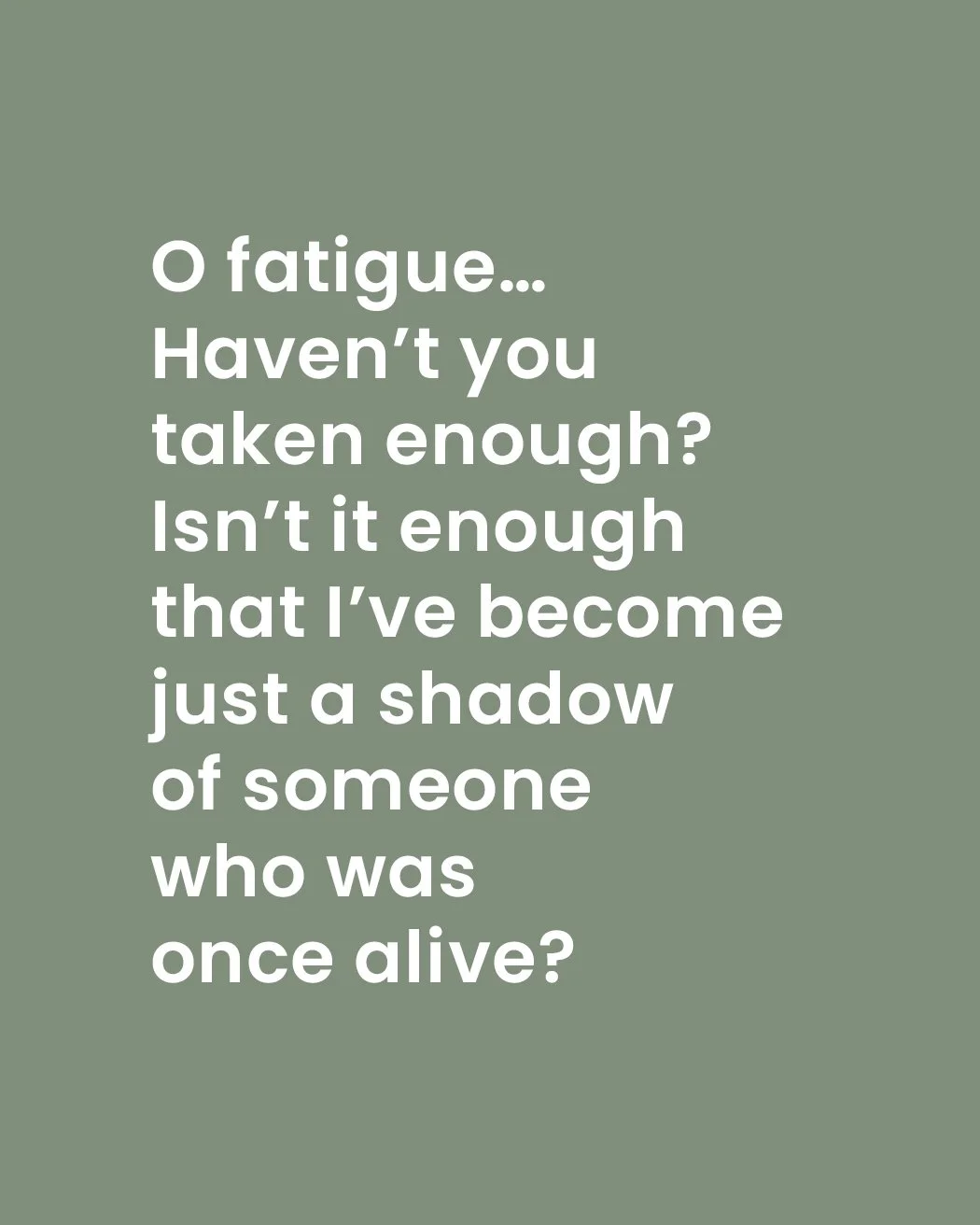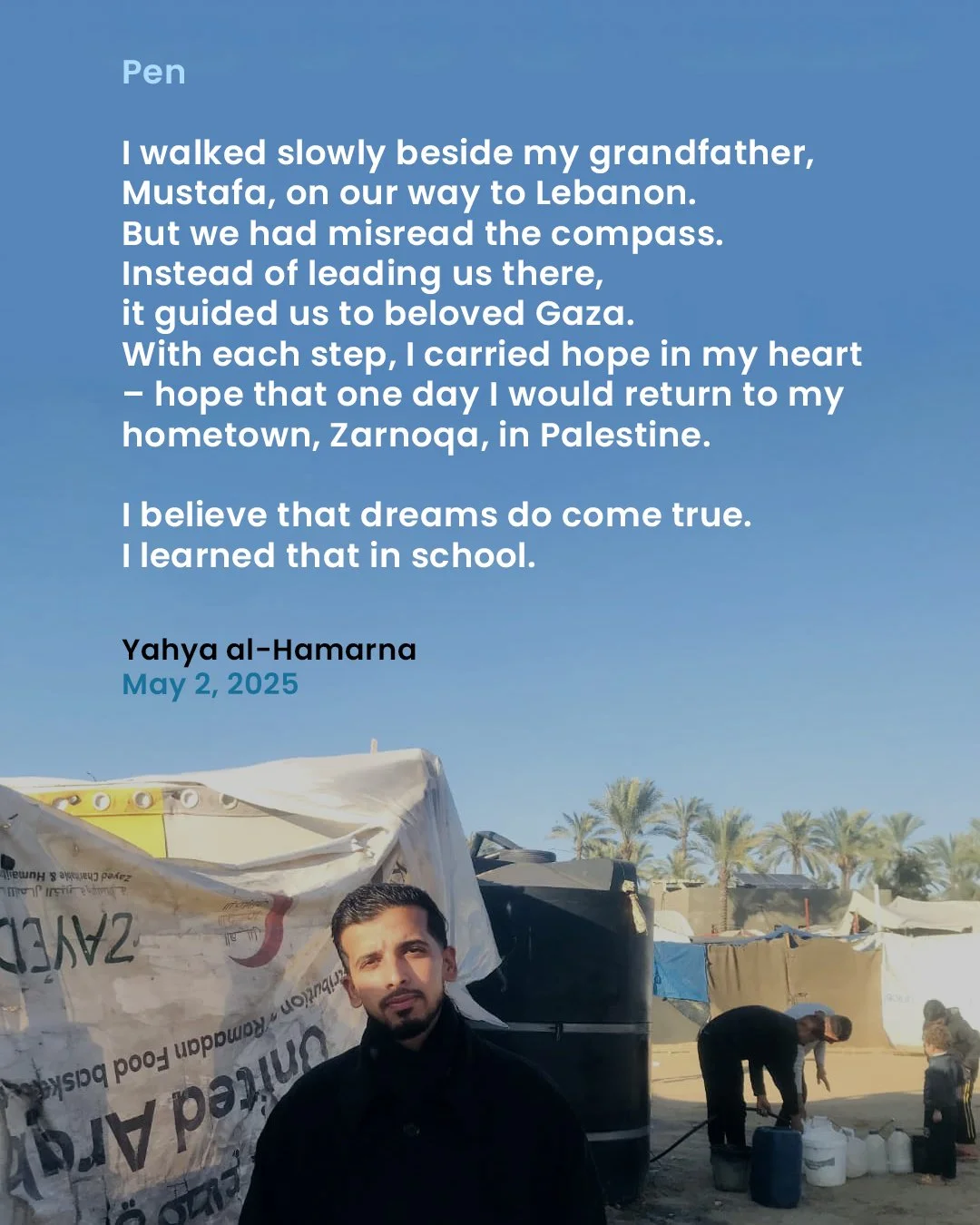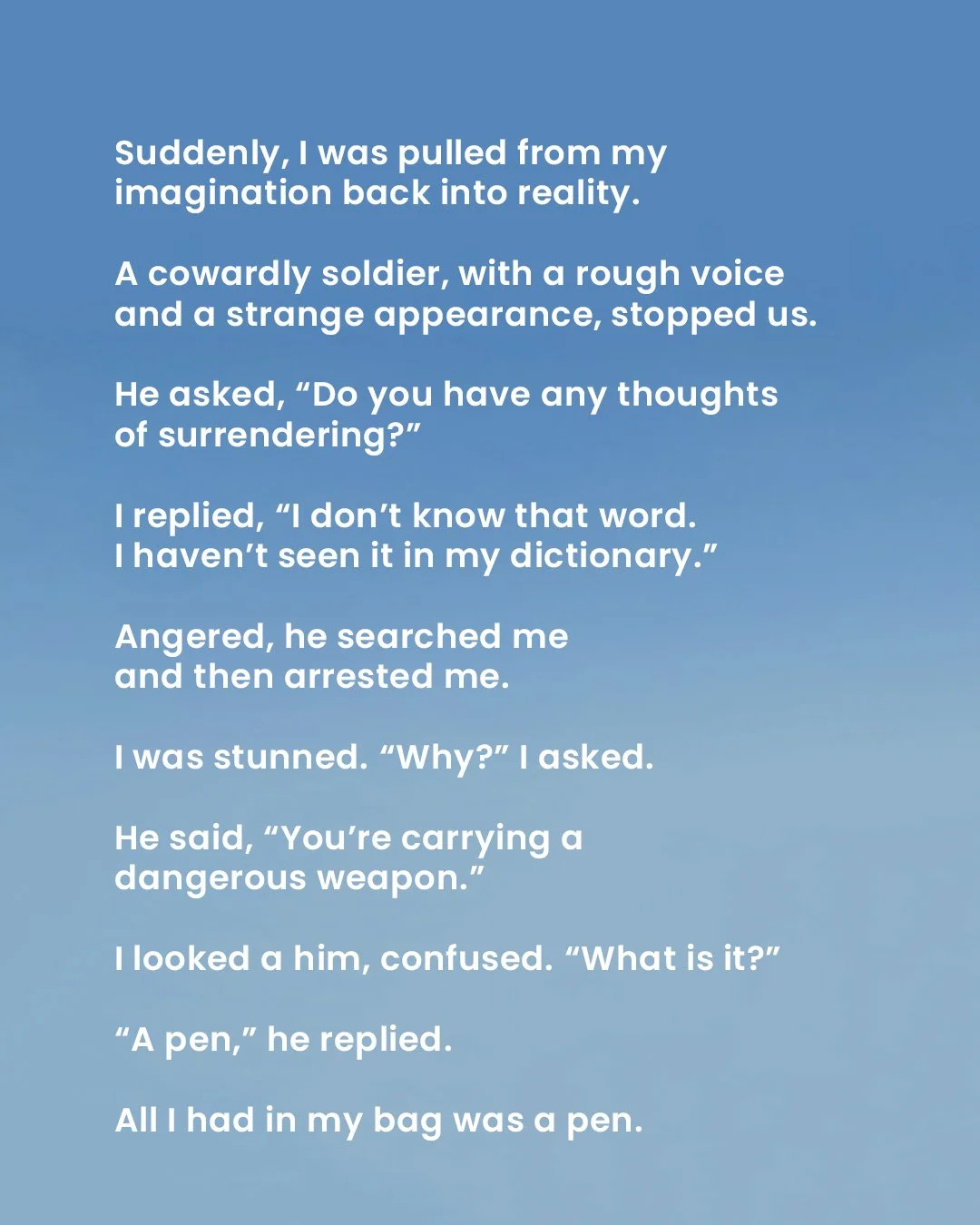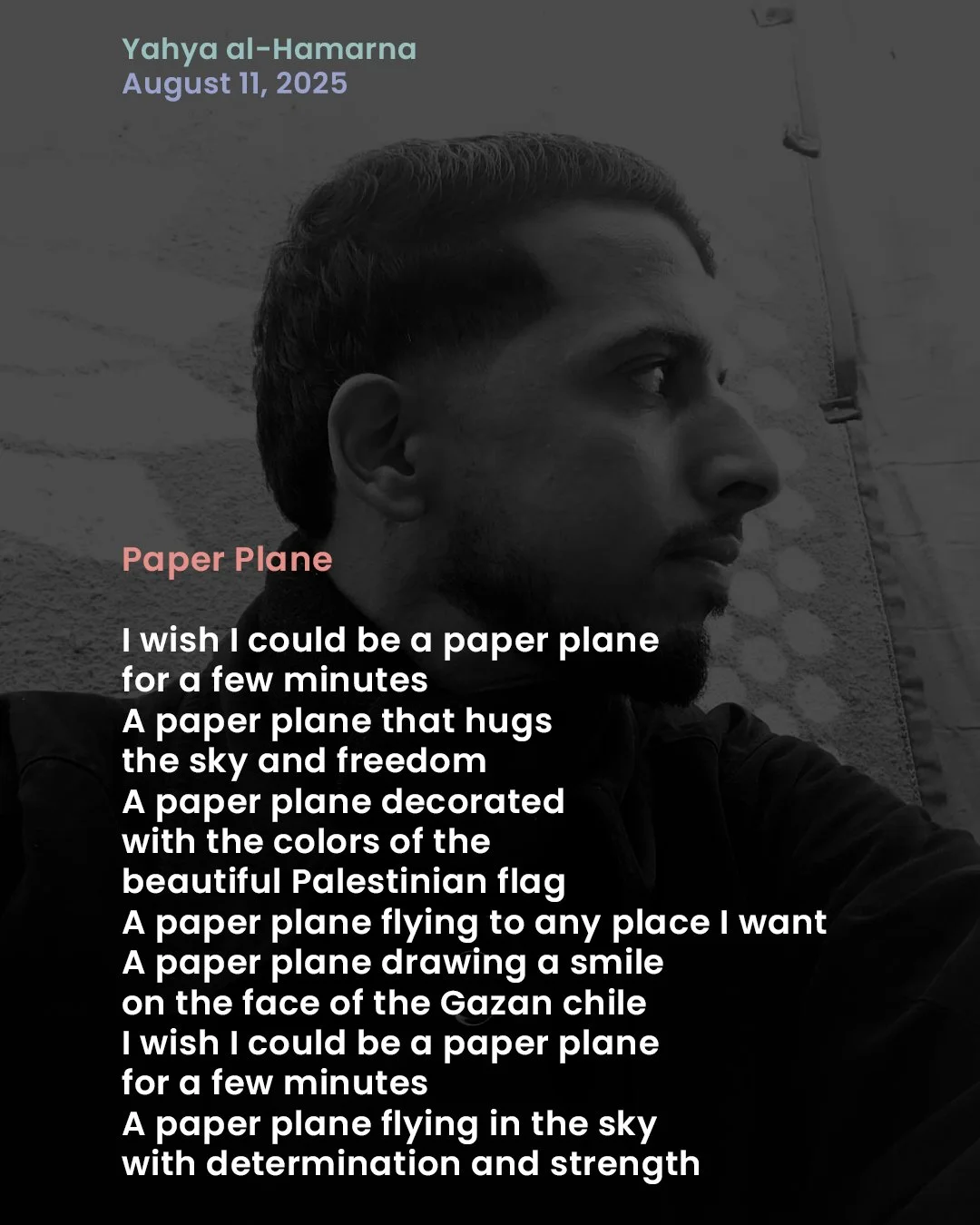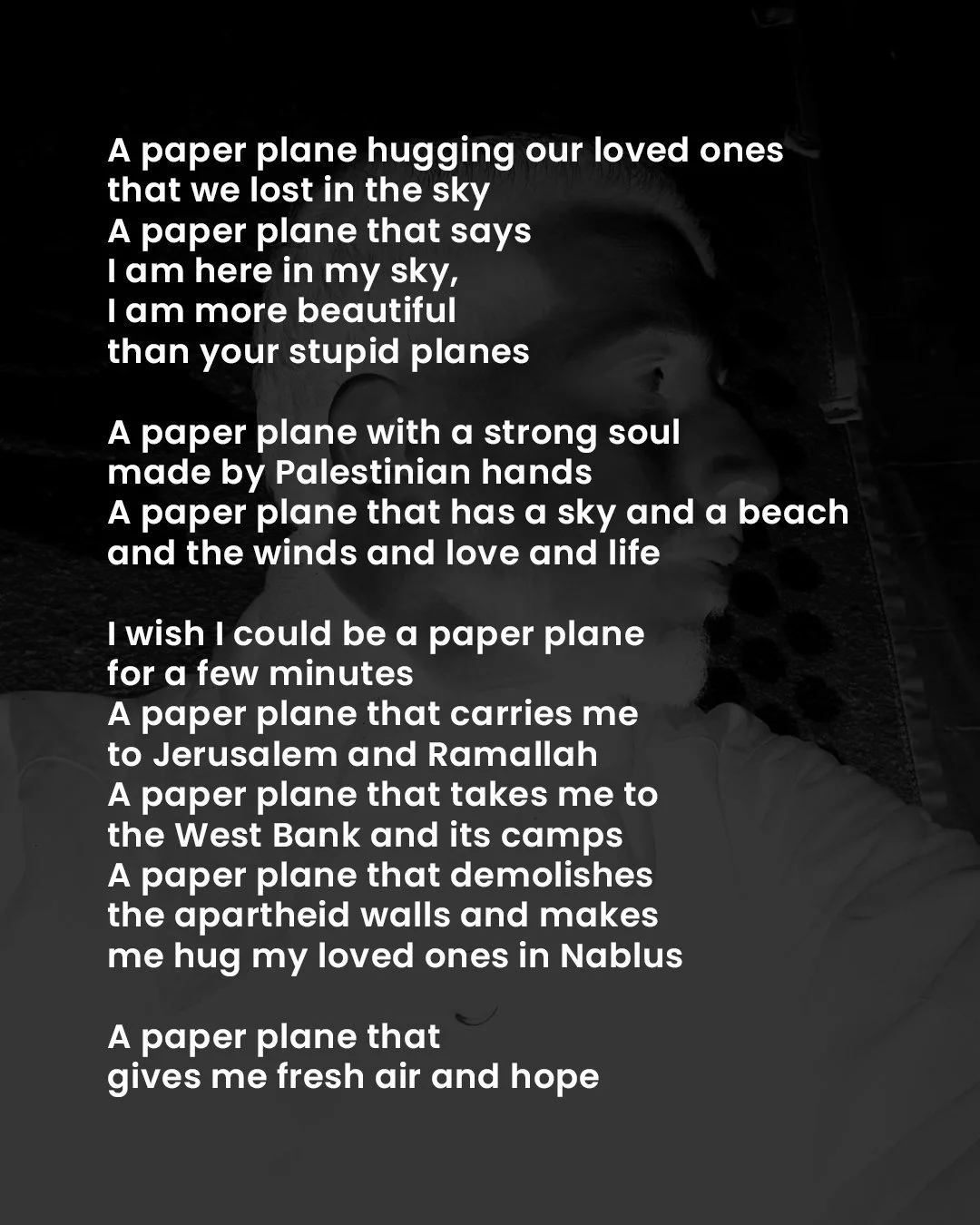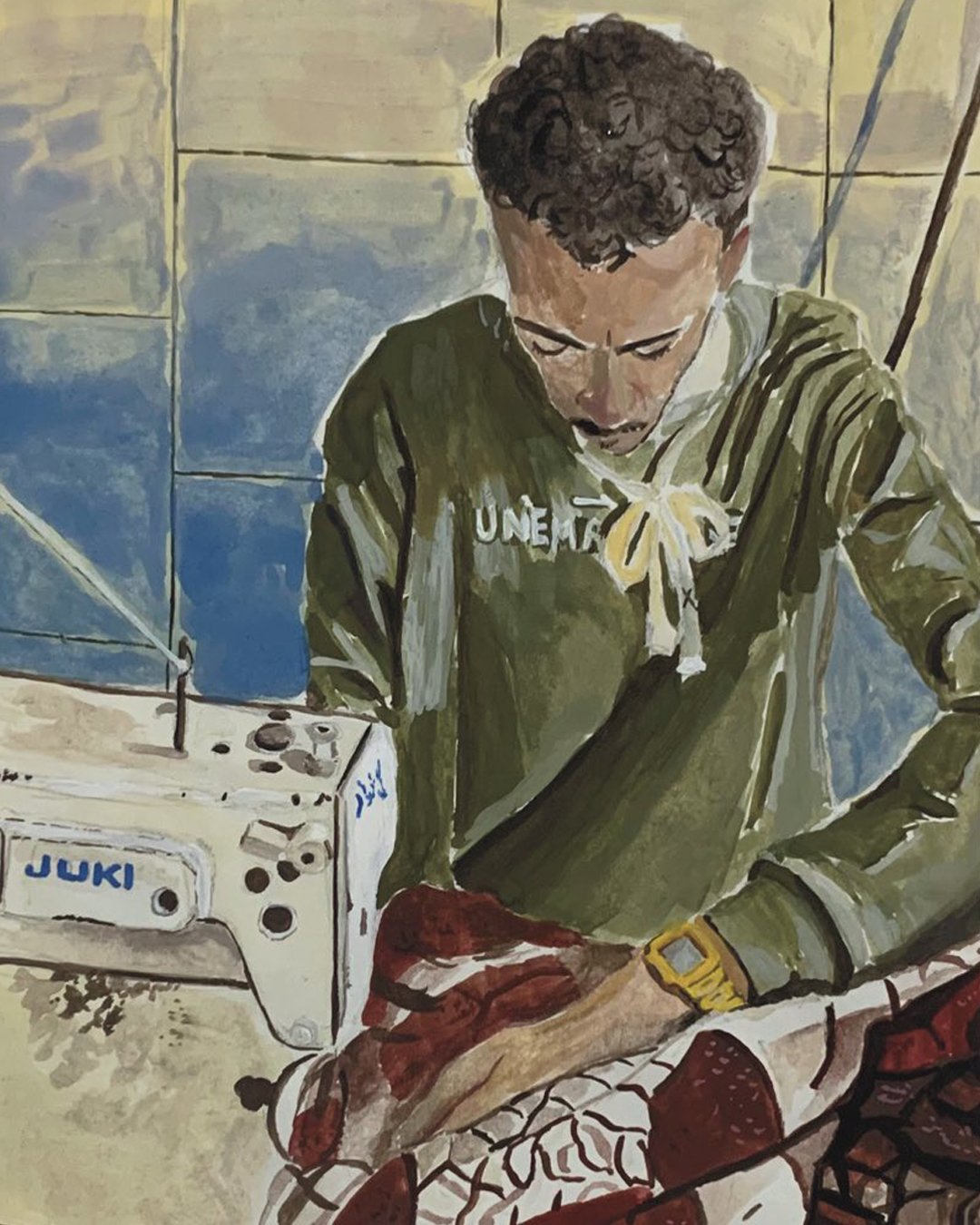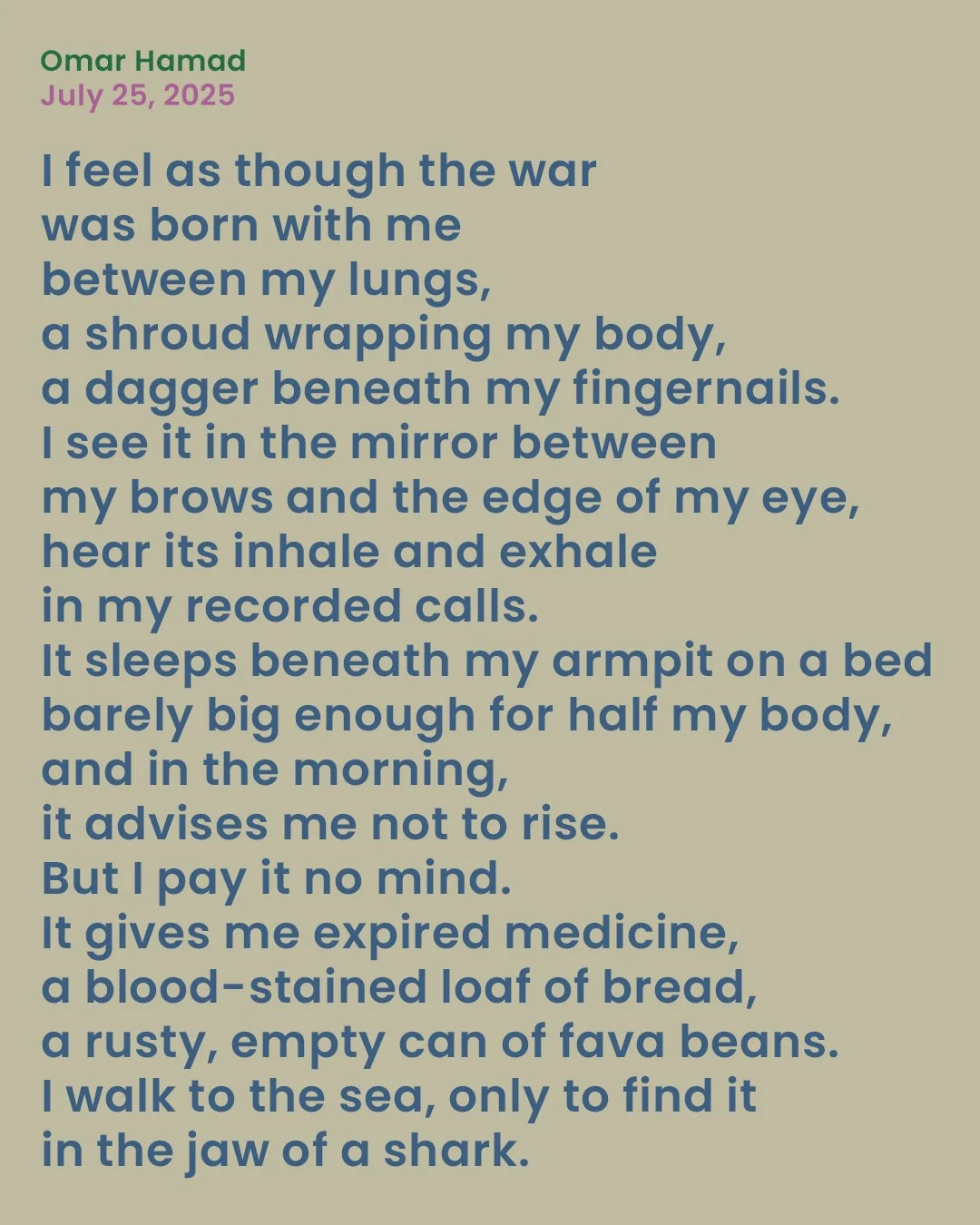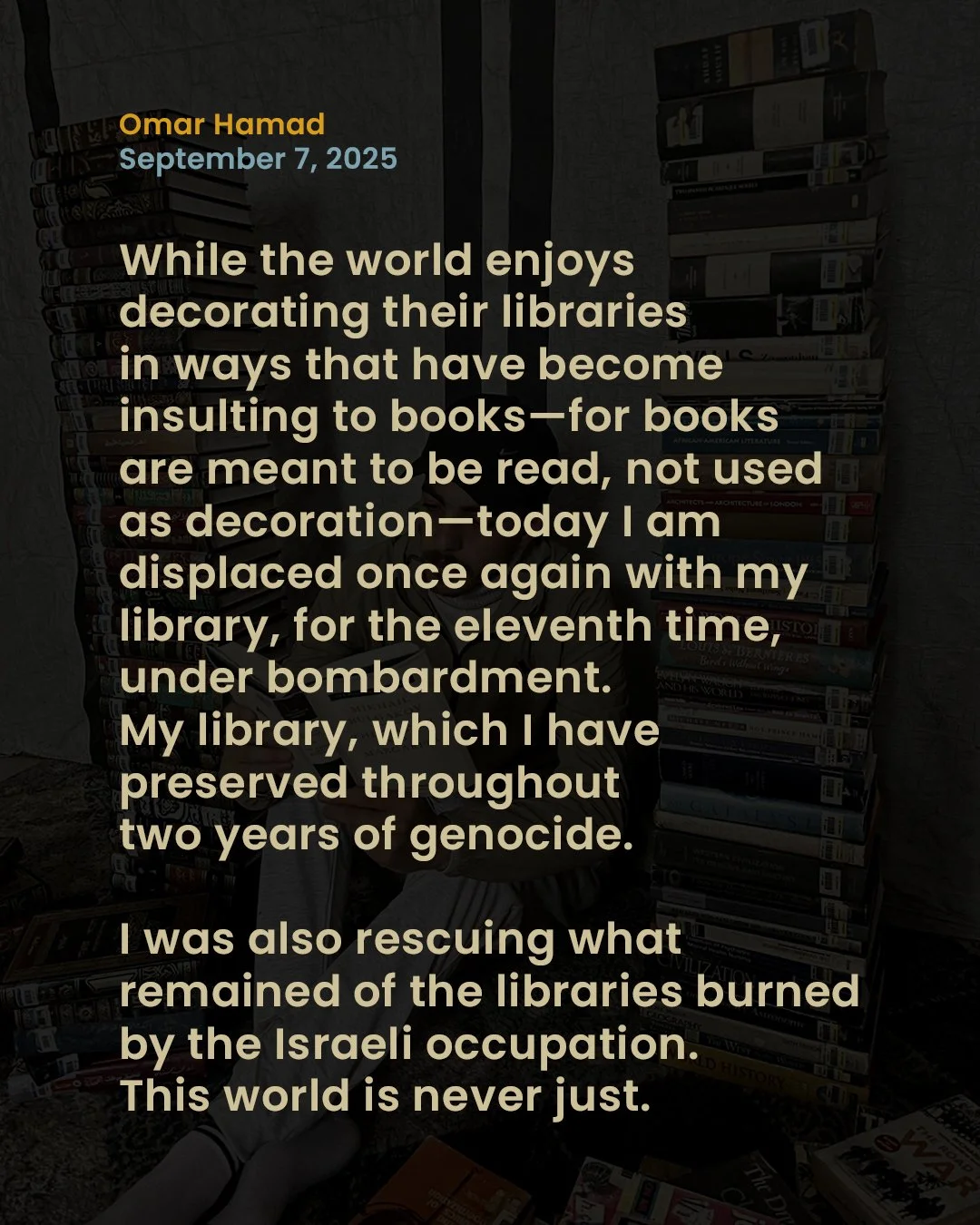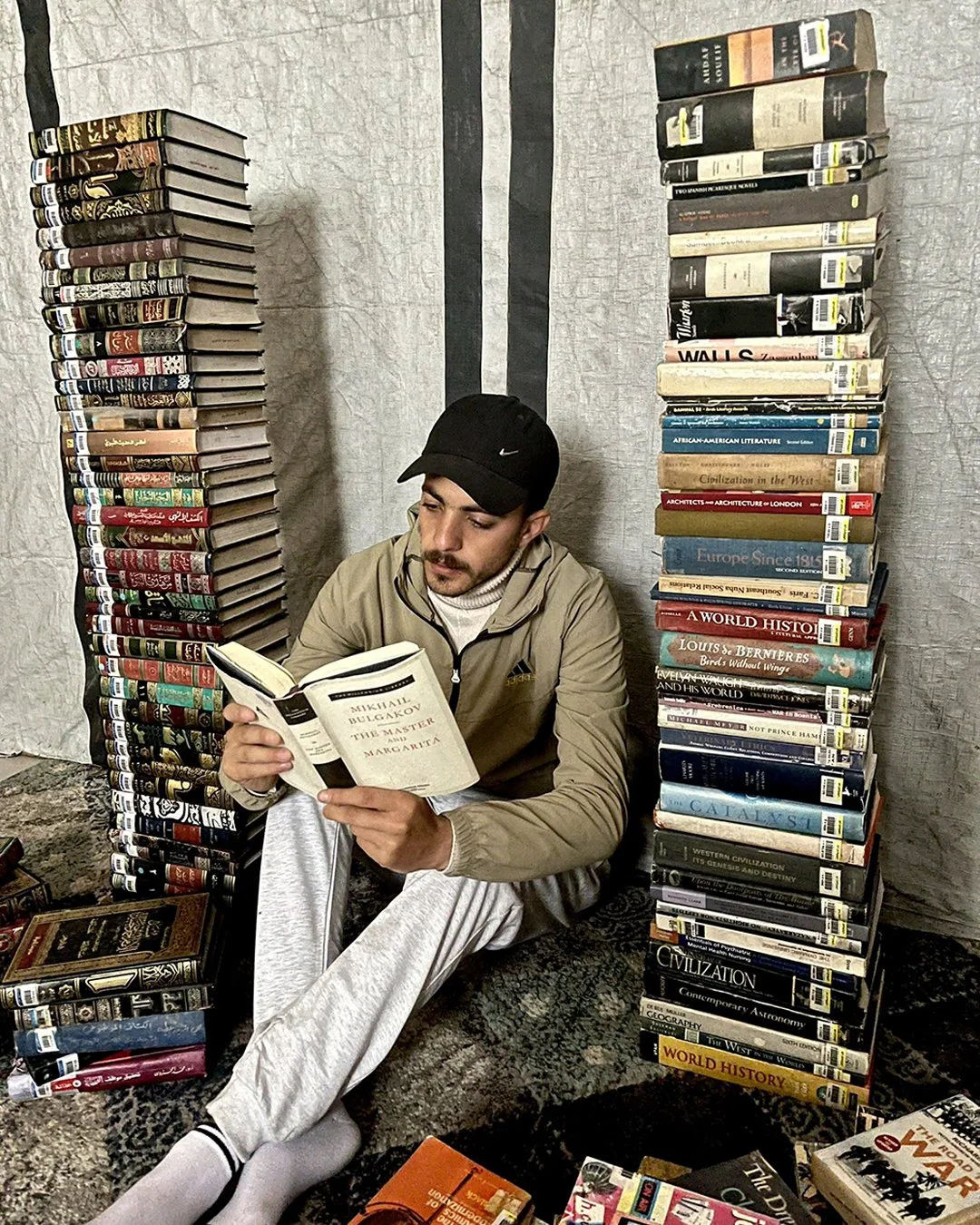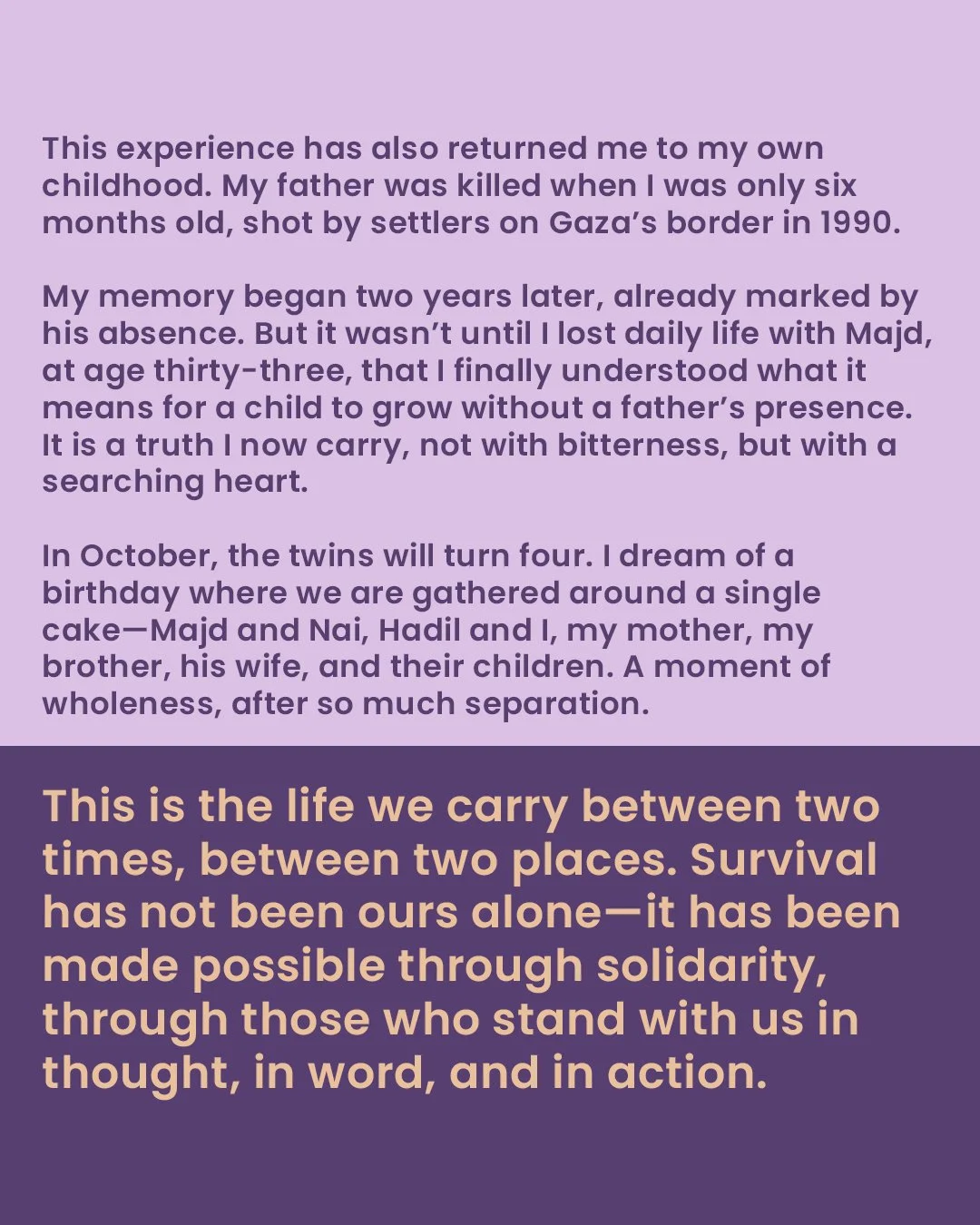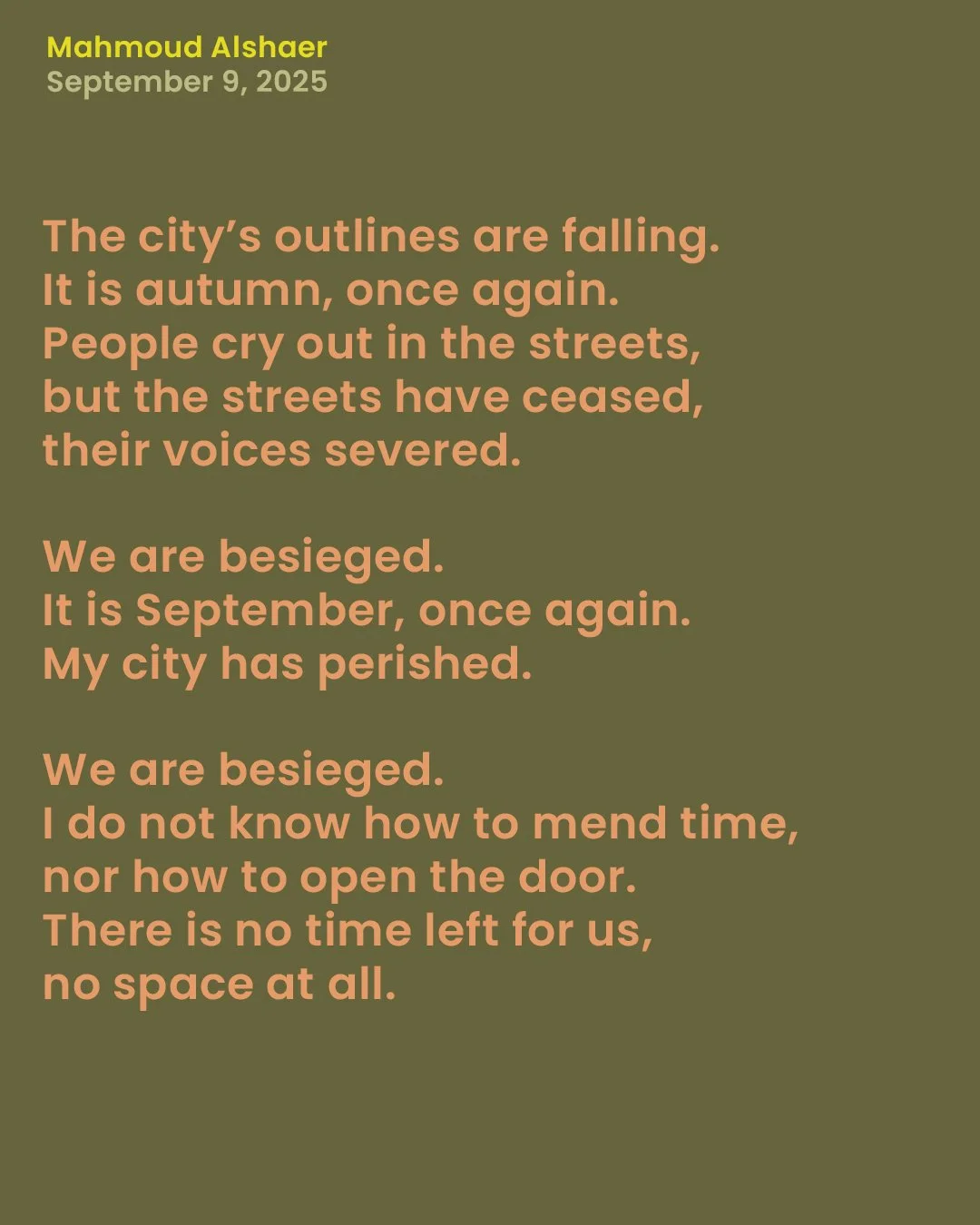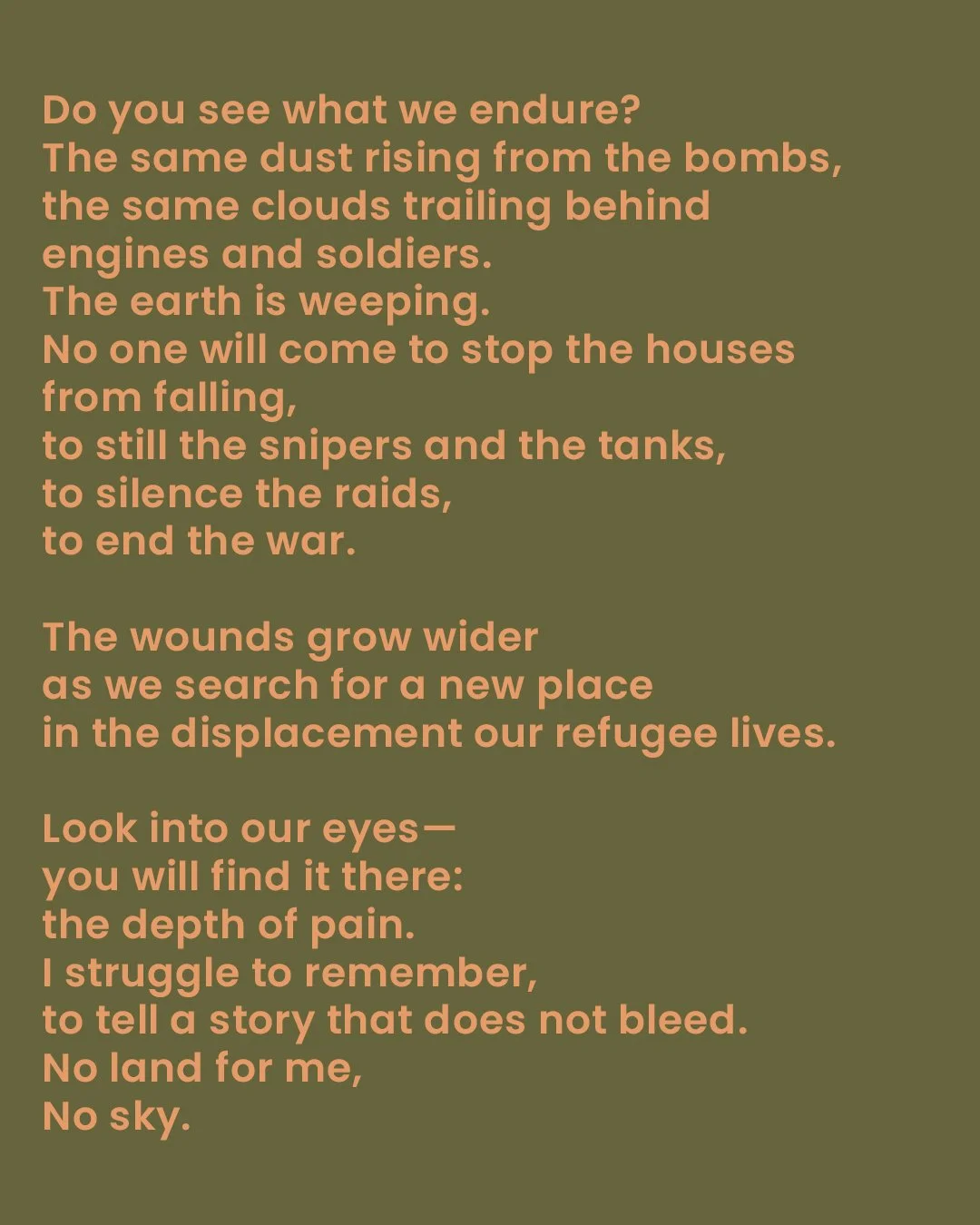Donate to Help Palestinian Writers/Poets in Gaza
Below is a collection of fundraisers for Palestinian poets and writers on the ground, impacted by the ongoing Gaza genocide.
Many are raising money to survive and maintain after losing their homes and being repeatedly displaced.
Please consider donating to any of these writer/poet fundraisers below to help them and their families.
You can also view more samples of each person’s work by clicking on the heading of their names.
Donya Ahmad Abu Sitta is a 23-year-old writer, poet, and translator. Her work has been published in Al Jazeera, The Electronic Intifada, Palestine Chronicle, and We Are Not Numbers. Throughout the genocide, Donya has also often appeared on EI’s livestream to talk about the current situation on the ground.
However, since childhood she’s dreamed of becoming a neurosurgeon.
“This dream was born from pain. I lost my grandmother four years ago to Alzheimer’s and neurological complications. Today, my other grandmother is beginning to show similar symptoms. In Gaza, neurological illnesses are increasing—likely due to frequent wars and exposure to heavy bombardment. I want to help. I want to be part of the solution.
After high school, I couldn’t afford medical school. I tried engineering but felt no passion. I then pursued English literature so I could work and support myself. I became a journalist, reporting from the ground during the war, writing for international outlets, and raising awareness about the realities of life in Gaza.
But the dream of medicine never faded. I’ve now been accepted into medical school. Sadly, the war forced my family to use all the savings I had prepared.”
Recently, Donya started a Substack and self-published her book Pieces – consisting of 22 poems and messages – with both English and Spanish translations. She also began teaching Arabic language lessons.
“For me, writing is freedom, and my dreams are limitless. I believe in the power of words. I create my chances to pass my ideas to the world by writing and photography.”
Jehad Abu Dayya is a 22-year old medical student, poet, and writer from Gaza. His poetry has been featured by Arab Lit, Coastal Lines Press, Maamoul Press, and Palfest.
In October 2023, he was displaced from Gaza City and has since been living with his family in a tent in Deir Al-Balah. His home and university were both destroyed during the genocide.
One of the top-scoring students nationwide, he still dreams of becoming a doctor. When the war broke out, he had been part of the Yara’at Writing Club in Gaza.
Witnessing the destruction of his homeland and all facilities, Jehad had the idea to start an English language-learning coffee shop in Gaza to rehabilitate the educational environment and help his people heal and persevere from the traumas of genocide, through study and communication.
“There is no innovative educational environment in the Gaza Strip that allows young men and women to learn it [English] in a practical and enjoyable way. In light of the challenges they face in terms of difficulty in learning the language, difficulty in speaking it, inability to organize time for it, and weak capabilities due to economic and political conditions…
The project aims to create an environment to develop English language skills and provide an unconventional educational experience that combines entertainment, learning, and communication.”
Amidst surviving displacement and harsh brutalities of the genocide, Jehad has released his debut poetry collection in Arabic, as well as “To The World” — a comic with his writings and drawings by Esraa El-Banna.
“The inspiration to write a comic started with my many experiences of displacement, as I left my house next to Al-Shifa and was then displaced from one place to another and from one tent to another. I thought of the art of comics as an international art to convey the images of our suffering to the whole world, and this is the least of daily suffering.”
In addition to their comic publication, Jehad and Esraa had been writing letters to each other between October 2023 and February 2025 — now published as a comic zine “The Final Scene”. All of his works are for sale to support his survival funds.
Sara Awad is a 21-year-old writer who focuses on social issues in the Gaza Strip, trying to help get out the millions of untold stories. She had studied English literature for a year at the Islamic University of Gaza, which was destroyed by the IOF, and she has continued studying virtually amongst survival.
Her 13-member family had remained in the Sheikh Radwan neighborhood in Gaza City, the north of the Strip, throughout the enter genocide. However, in September 2025, they evacuated to the south as Gaza City was invaded and under renewed attack.
Sara is a contributor to We Are Not Numbers and has been published on outlets such as The Intercept, Al Jazeera, TRT World, Truthout, So Informed, and more.
images via @abolishtheusa
Yazan Mohammed is an 18-year-old high school student who dreams of being an architect. He had aimed to go study engineering in Egypt.
“I write poetry to relieve my suffering, but unfortunately the pain we feel is unimaginable.”
He has three brothers. The youngest, Aser, was born during the genocide.
Yazan also founded the Bridge of Solidarity, a self-described anti-capitalist mutual aid initiative in Gaza – “challenging the West’s pity economy, supporting people without phones, social media, English skills, or living family.”
"For native people everywhere, water is life. All that we have left that the occupation cannot take is our humanity, honesty, community."
Throughout the genocide, he has written stunning analysis on what genocide has taught him about capitalism, the impact of "social media begging on youth's mental health", how the left makes Palestinians perform for donations, and genocide's effects on the eldest children of families.
His first chapbook of poems, A Beautiful Day in my Imagination, written during the ongoing genocide, is available for sale to support his campaign and family.
Haidar al-Ghazali is 21-year-old poet who started self-publishing his work almost a decade ago. He studied English literature and translation at the Islamic University before the school was destroyed by the IOF.
His poems have been translated into nearly a dozen languages. He has worked with the Abdul Mohsen Al-Qattan Foundation in Gaza to support children through psychosocial activities and volunteered with Tamer Institute for Community Education. In addition, Haidar has served on the editorial board of the Yaraat team and as a culture editor for the newspaper al-Yamamah.
The martyr Fatma Hassouna also asked Haidar to write her elegy.
As of late November 2025, Haidar evacuated to Italy, where he will attend university.
“I dream of finishing my university education abroad, and of turning my life experiences into books about love and life.”
Baraa’ah Qandeel is a 26-year-old writer, poet, translator, and a professional in digital marketing and business development.
Her family is from Deir al Balah, but were displaced during the genocide, including to Rafah in the south of the Strip. During this time of attack, her best friend was also martyred.
She is one of the 16 emerging literary translators accepted to ArabLit’s Summer 2025 Gaza Literary Translation Workshop, supported by Palestine Writes, and she has been featured on their website multiple times. Previously, Baraa’ah wrote for We Are Not Numbers.
"I believe that my ultimate goal is to reach my freedom and to fully embrace it in this journey of life, whereas every other goal is just a phase in the process. I also believe that in order to be free you have to embrace a message to deliver to the world and a voice for this message to be heard, so writing is the perfect medium.
Writing for me isn't only a mean of communication or just a hobby; it's my way of expressing myself to the world, and a way of liberating myself from shackles that might restrict my mind, heart and soul. I believe writing has this distinct ability to grant you a tongue and a voice to speak for yourself in your own unique style and notify the world that here you are, existing in this universe, and you are not voiceless anymore."
Writing has not been easy. When asked about how her process has been affected, she said:
“I’ve wanted to use my emotion, to channel my emotion into a helpful cause. A poem, or a piece that I can give to the world as a solace or to capture what is happening here. But no matter what I write, I feel words cannot do justice to the horrific acts of violence I have witnessed…
There were months when I felt so helpless and speechless that I couldn’t write even one word. And other times where I would pour words onto paper and aggressively write poems.”
Currently, Baraa’ah is fundraising for survival and to try to evacuate for grad school in Malaysia to get her Master’s degree. She has already been accepted at one of the top universities in the country, the International Islamic University of Malaysia (IIUM), but she needs the funds to go.
images via @PalFest & Batool
Batool Abu Akleen is a 20-year-old Palestinian poet and translator. At just 15 years old, she became an award-winning voice with her poem "I Didn't Steal the Cloud" by receiving the Barjeel Poetry Prize, where poets were asked to respond to works of Arab art. She’s continued to receive accolades and her work has been featured in ArabLit, We Are Not Numbers, and more.
Batool serves as a mentor for the “SOAS Hands Up Project – Creative Writing Mentor” program in London and recently received a fellowship from the Akademie Schloss Solitude in Germany. During her time as the 2024 Poet in Residence with Modern Poetry and Translation, Batool also collected and translated: SEA SHELLS: An anthology of emerging poets from Gaza.
She was born and raised in Gaza City, and was living there before being displaced in the genocide. Amidst surviving, she has continued writing and sharing her poems and stories.
Batool’s debut billingual collection of poems, 48kg., was published in June 2025 by Tenement Press. In 2025, her poems were also published in the book collections of Letters from Gaza anthology and Voices of Resistance: Diaries of Genocide.
However, this has been a bittersweet process for her, to say the least:
“I've written all my poems on the blood of my comrades and loved ones. On my pain, on my burnt fingertips, on the prospect of my own death. When I finish writing a poem, I look at it with tears welling in my eyes and heart; O God, how beautiful it is, and how ashamed I am that pain looks so beautiful.”
Recently at the end of 2025, Batool has finally been evacuated to France. She had previously been accepted to an undergraduate program in the Film Department at the Sorbonne Nouvelle.
poem text & translation via The Poetry Foundation
Nasser Rabah is a 62-year-old poet and writer. He is a member of the Palestinian Writers and Authors Union and has published five collections of poetry and two novels.
As his latest publisher City Lights writes about Nasser’s background:
“Born in Gaza in 1963, Rabah spent some of his formative years in Egypt, before returning to Gaza in his early twenties, where he has lived ever since. There, among the generations who built its neighborhoods and populate its villages, in a place of great natural beauty and vibrant cities, living under constant surveillance, military occupation, blockade, siege and regular attack, in a culture steeped in literary and spiritual tradition, Rabah developed his distinctively singular vision and poetics.”
His new book is Gaza: The Poem Said Its Piece (2025), through City Lights, is his first work with English translations. It features pieces written during the genocide and some of his previously-published poems. It’s described as having a sense of surrealism and a delicate tenderness that is always on edge.
Mosab Abu Toha, a well-known poet from Gaza, wrote in LitHub:
“If I were to pick only one poet from Gaza to be translated and published in the English-speaking world, this is who it would be. Nasser Rabah is my favorite living poet in Palestine. The language he uses in his poems is dazzling. His metaphors are like raindrops pouring over me after a long summer. The musicality of his lines could replace my heartbeats and I would feel more than alive.”
Heba Al-Agha is a writer, poet, and and creative writing teacher at the A.M. Qattan Foundation in Gaza City. Her work has been published in outlets such as ArabLit, The Institute for Palestine Studies, and LitHub.
Mentee and student of Heba, Batool Abu Akleen, has said:
“Heba is and will always be my favorite person. She is an incredible woman, instructor, and writer!
When I was a little kid, I used to ask her, ‘Why don’t you publish your own book?’ She would answer, ‘I am raising writers who’ll publish and write wonderful books. You are my output.’
(Heba’s) the first one who taught me how to see the world in a more poetic way – or let's say that she opened my vision… she helped me and a lot of poets to become who they are and to express themselves and to discover that world of poetry and writing in general.”
Heba is also a wife and a mother to two young children. They were displaced many times from their home. After eight months, they were one of the few lucky enough to evacuate to Egypt in 2024; it came at the cost of leaving behind their previous life and possessions outside of a suitcase. Now, they are living in Cairo and raising funds to survive. Palestinians who escaped the genocide still need support, too.
slides via @abolishtheusa
Ibrahim Hq is a 17-year-old poet who dreams of becoming a doctor. He is one of many teenagers in the Gaza Strip who are helping provide for their family during the genocide.
“The world sees and shuts its eyes. Enough, enough our children have been killed and starved, our youth's biggest dream is to migrate, and parents only think about what they will feed their children tomorrow. And then some lunatic comes on TV and speaks about humanity. Have mercy on us. My dreams are shattered.
Every night when I lay my head on the pillow to sleep, I wonder if I will ever return to being the Ibrahim I was before the war the one who dreamed of life, of success, of the future, the one who saw himself in the highest ranks, proud of himself. Now I wait for any donation just to secure tomorrow's meal.”
small graphic via @ashour1654
Hala al-Khatib is a 20-year-old poet and writer. She studies English literature, but her university was destroyed by the IOF.
Hala’s writings have been published with Al Jazeera, We Are Not Numbers, Mondoweiss, and Electronic Intifada.
She is one of several siblings – including a sister, Nada, who is a visual artist. They have been fundraising for their large family of 14 members, including their elderly parents, who have been displaced.
“Our family home in the Nuseirat camp, once a haven of laughter and love, now stands fractured and marred by war's relentless touch. Each corner of destruction around us is a stark reminder of the peace and tranquillity that seem like distant dreams. Within these broken walls, my family, encompassing my parents, siblings, and young nephews, clings to fragments of hope.”
Hala is engaged and planning to get married soon.
illustration via @ahlan.my.darlings
Shahd Alnaami is a Palestinian writer, poet, and translator. During the genocide, she has been displaced multiple times, her university was destroyed, and her 13-year-old sister was martyred by the IOF.
Throughout this all, Shahd has continued to write and to study. She has been published by Al Jazeera, Mondoweiss, We Are Not Numbers, and other platforms. She has also been working tirelessly to host writing workshops, amplify her and other Gaza writers' voices, while also exposing the occupation's destruction and showcasing her community's resilience.
“I am committed to illuminating the struggles of Palestine through the art of language, transforming our stories into a universal narrative that resonates across continents.
Inspired by the belief that ‘We will write until Palestine becomes free or we die,’ I view writing as both a beacon of hope and a form of resistance.
If we, the storytellers and dreamers, do not speak up, who will?
Our words are our weapon, our voice for the Palestinian cause, and our bridge to the world. Through my writing, I strive to ensure that the voices of my people are heard and our stories are told because we are not just numbers.”
Her zine made during the genocide – The writings of Shahd Alnaami – has been distributed internationally and translated into Spanish, French, Italian, and more, with proceeds supporting her campaign and remaining family. Her digital graphic novel, "Friendship, Love, and Loss in Gaza" was published by Al Jazeera.
Shahd is also a contributor and curator of Coastal Lines Press, "a collective of writers in Gaza, turning words into life-saving supplies for our families." Booksellers or individuals around the world can support the initiative by printing and selling wherever they are.
"Through Zines from Gaza, we publish independent booklets of poetry, essays, and testimonies that travel like tiny vessels from coast to coast, carrying stories of survival, resistance, and hope... Our name, Coastal Lines Press, honors the Mediterranean Sea, which anchors life in the region, and celebrates the ‘lines’ of language - words, sentences, prose, and poems - that connect writers to readers worldwide."
Mahmoud Massri is a 23-year-old from Beit Hanoun in the north of the Strip. He was studying Biomedical Engineering at Al-Azhar University in Gaza City to serve the sick and help heal his community. This dream is now on pause as he tries to stay alive.
Over the past two years, he has tirelessly been sharing writings amidst violence and displacements, as well as photos and videos, to document the genocide and exposing its many forms of harm. This effort is something he feels compelled to do as a witness of the genocide.
Recently, Mahmoud wrote:
“When they announced a temporary truce.. and allowed us to return to Beit Hanoun.. I found my home still standing, good enough to live in temporarily. I moved back in, filled with happiness and hope that we would return to how things were before, or even better, and that we would rebuild Gaza.
I felt a deep sense of comfort, as if safety and stability had finally returned to my life. I thought, ‘Now I’m home, I won’t be displaced again, I won’t suffer and endure the pain of another forced journey.’
The very first thing I found in my house, the thing that caught my eye, was this keffiyeh, our symbol, the symbol of Palestine.
But… they bombed Beit Hanoun again, and wiped it off the map. Now it has become nothing but a desert. I have no home, no land, everything was destroyed and vanished in the blink of an eye, as if they forced me to say goodbye to what was left of my home… ”
The eldest of a family of nine, Mahmoud supports his family, made more difficult by the fact that his father is injured and unable to move. He also tries to assist neighboring families with food, medicine, and emotional support.
Yahya al-Hamarna is a 24-year-old writer from Gaza City. He was studying international relations and diplomacy (political science) at Al-Azhar University, before the school was destroyed by the IOF in both October and November 2023.
His first book, My Voice Cannot be Bombed, was just published in August 2025 by Iskra Books.
“In his luminous debut, Yahya Al Hamarna documents the brutalities of war alongside the fragile rituals of everyday life—studying, walking to the park, reading poetry, preparing tea, mourning, surviving.
From the cramped intimacy of displacement tents to the imagined serenity of university lectures and Real Madrid matches, Al Hamarna crafts a poetics of survival: one that refuses despair and insists on the unconquerable dignity of the Palestinian people.
Through diaristic reflection, stark testimony, and vivid lyricism, Al Hamarna’s work resists the machinery of occupation with quiet force. With grace and fury, My Voice Cannot Be Bombed speaks from the rubble and into history.”
Yahya wrote most of his book in a tent, while under constant displacement.
“The bombing cuts short every idea before it is complete. Sometimes I wrote on torn paper, other times on my small phone by candlelight. But this just reminded me that writing is not a luxury, it’s a necessity.”
Yahya has been keeping a daily diary throughout the genocide, which can be followed through his Substack or Instagram.
Yahya is in the process of resuming his bachelor’s degree studies online. In the future, he also wants to pursue a master’s degree. In the meantime, he’s continuing to write.
“I was writing to remember that I was alive – and to prove that a voice can emerge, even from under the rubble.”
Omar Hamad is a 29-year-old writer, poet, tailor, and pharmacist. He is from Beit Hanoun in the north of the Gaza Strip and has been displaced many times.
Omar came back to his hometown during the brief "ceasefire" earlier in 2025, but then has been repeatedly displaced again since then. He has transported a large library of books each time, including many he rescued from destroyed libraries across Gaza.
He has been living with his family, several of whom are deaf and mute. At the end of July, he got engaged.
Throughout the genocide, Omar has been sharing his writings on social media. Despite the threats on his life, he has ultimately kept using his voice.
Omar’s forthcoming book Nameless Remains will be released soon. A Japanese translated book of his works, Omar’s Diary, released at the end of September 2025.
Mahmoud Alshaer is a poet, writer, cultural curator, father, and husband.
He served as the Executive Director and Editor-in-Chief of Majalla 28 (aka 28 Magazine), an independent literary and cultural platform he co-founded in 2014 to amplify emerging Palestinian voices.
Mahmoud also led Gallery 28, a community library in Rafah that focused on Palestinian literature and cultural production. They welcomed both writers and artists by hosting exhibitions, concerts, and readings. The building was destroyed by the IOF in May 2024. However, he and his co-founder kept it going through the genocide, including collaborating with ArabLit on their Spring 2024 issue.
In addition, he has also worked as the Cultural Program Coordinator at Al Ghussein Cultural House, in Gaza’s old city.
During the genocide, Mahmoud and his family have been displaced several times. One of his two children – his son, Nai – was evacuated to Turkey with Mahmoud’s mother in November 2023. This has made it even more difficult for the family to be separated for this long. Through it all, he’s continued to write.
Mahmoud’s personal writings have been published several times this year – Letters from Gaza, I Am Still Alive, and A Year on the Abyss of Genocide.
“For two years I have lived under genocide, breathing in a cellar of impossibilities—impossibilities too large to believe. Entire cities vanish. Tents become makeshift salons; rubble turns into a living room. Everything defies reason.”
Bonus
We Are Not Numbers
WANN, est. 2015, helps writers in Palestine, mainly Gaza, to provide training and develop storyteller–journalists through language, narrative development, editing/revising process, pairing with mentors, and help connect with Western audiences. They also help to promote the published stories online to find audiences.






